Non-profit NGO that does not apply for private donations or public subsidies
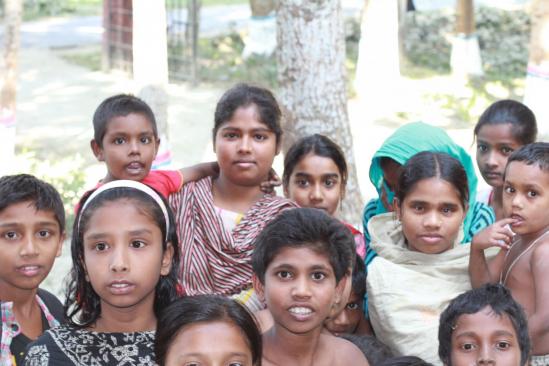 For an end to slavery-like working conditions for parents and so that children can go to school
For an end to slavery-like working conditions for parents and so that children can go to school
1919 - 2019 - A century ago, the idea of a "global minimum wage" based on a proportion of the median wage or average income of each country and that of a "living wage" were mentioned as soon as the International Labour Organization (ILO) was created. But since then, these drafts have proved to be inapplicable on a global scale.
Today, the "International Convention for a Global Minimum Wage" project could be the only viable global minimum wage proposal since the commencement of the studies in 1919. This comprehensive, pragmatic and structuring economic approach could reduce both inequalities and environmental damage, encourage less but better consumption and may be the best way to achieve the living wage enshrined in the United Nations Universal Declaration of Human Rights in 1948. A reasonable global minimum wage, as we have been advocating since 2013, with 5 to 7 levels of compatibility, initially sectorial, progressive and specific to exported production, could succeed and mark the beginning of a rich economic, ethical and philosophical reflection. Francis Journot
____________________________________
![]() The UN and other institutions whose Malthusian policy aims to control fertility by limiting development and setting new ecological standards that also prevent the industrialization of sub-Saharan Africa, have been mistaken for 60 years. Mostly ideological and dictated by the IPCC, the global investment policy benefits digital and sustainable development funds or actors, often Chinese, at the expense of other activities that would concretely reduce hunger. Only an increase in the standard of living that will encourage the education of children and the emancipation of women will allow, over the years and generations, a reduction in the birth rate. Faced with this failure and the worsening of extreme poverty and even possible famine situations in 45 African countries as a result of the war in Ukraine, world organizations should finally agree to change their policies. They could adhere to the financing of essential structures and infrastructures that we advocate within the framework of the project. The overall cost of development will be very modest in comparison with the inefficiency of past actions which have nevertheless cost more than a trillion euros. Ultimately, the program will reduce poverty on the African continent as well as immigration to Europe, while offering us new opportunities that will create activity and countless jobs in all sectors, in France but also in the EU.
The UN and other institutions whose Malthusian policy aims to control fertility by limiting development and setting new ecological standards that also prevent the industrialization of sub-Saharan Africa, have been mistaken for 60 years. Mostly ideological and dictated by the IPCC, the global investment policy benefits digital and sustainable development funds or actors, often Chinese, at the expense of other activities that would concretely reduce hunger. Only an increase in the standard of living that will encourage the education of children and the emancipation of women will allow, over the years and generations, a reduction in the birth rate. Faced with this failure and the worsening of extreme poverty and even possible famine situations in 45 African countries as a result of the war in Ukraine, world organizations should finally agree to change their policies. They could adhere to the financing of essential structures and infrastructures that we advocate within the framework of the project. The overall cost of development will be very modest in comparison with the inefficiency of past actions which have nevertheless cost more than a trillion euros. Ultimately, the program will reduce poverty on the African continent as well as immigration to Europe, while offering us new opportunities that will create activity and countless jobs in all sectors, in France but also in the EU.
Francis Journot
United States of Sub-Saharan Africa (USSA)
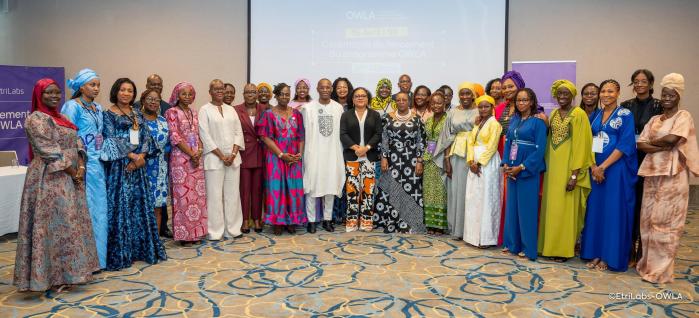
The creation of a homogeneous economic community of sub-Saharan African states facing the same demographic and malnutrition problems could prove relevant. More economically operational and executive than political and administrative, this community must aim to free itself from ideologies in order to better reconcile the imperatives of environmental preservation and the industrialization that is essential to modernize the region and reduce extreme poverty. Published the Wednesday, March 26, 2025
United States of Sub-Saharan Africa (USSA) & Program for the Industrialization of Sub-Saharan Africa.
![]()
Francis Journot : "If Europe doesn't help
sub-Saharan Africa to industrialize,
immigration will explode"
Le Figaro/Tribune published october 20, 2021. The population of sub-Saharan Africa is expected to double by 2050. It is therefore urgent that this one develops, with the help of international companies, its own industry, for consumer goods, which will create jobs and also respect its environment. However, since the climate issue has become an absolute priority, we have seen a shift in funding towards green or digital projects, even when they do not create jobs. But this policy, which would prevent industrialization and keep Africa in poverty, would also cause an explosion of migratory flows to France and other EU countries.
he issue of industrialization of Africa to avoid chaos is more crucial than climate change
If Africa fails to industrialize and modernize, we will see an increase in situations of extreme poverty, malnutrition and subsequently chaos across the continent. Several hundred million Africans among a population which should number 2.5 billion inhabitants in 2050, will then wish to come to France and Europe to flee hunger and death.
The democracies which protect Europeans from war and disorder will not be able to survive this upheaval. The collapse of Western civilization in a more or less distant future is often mentioned. It could now happen in less than 3 decades. Whether we think that the origin of climate change is mainly anthropogenic or not, the subject of the economic development of sub-Saharan Africa to avoid chaos, appears more urgent than that of climate.
International institutions are aware of the unprecedented crisis that is brewing
In sub-Saharan Africa, the region with the highest demographics, the number of people suffering from malnutrition was estimated at 236 million in 2017 among 431 million living in extreme poverty. According to international institutions, these figures could double or triple in the years to come. 30 million young workers enter the African labor market each year, but only 10-15% of them find employment. Out of idleness, some join Islamist sects.
The International Labor Organization (ILO) estimates that informal employment rates among young people aged 15 to 24 reached 94.9% in Sub-Saharan Africa in 2018 and up to 97.9% (Senegal) in French-speaking countries in Africa. from West. The UN is aware of the looming humanitarian crisis because, according to it “If the current trend continues, by 2030 Africa will be home to more than half of the chronically hungry people in the world».
Green finance policy could hinder Africa's industrial development
The approach of the Sustainable Development Goals (SDGs) set by the UN for 2030, foremost among which are extreme poverty and hunger, is holistic. But the 17 desired indivisible and transversal objectives are often opposed to each other. The IPCC, which brandishes the threat of 250,000 additional deaths per year due to climate change, calls for carbon neutrality which would however go against the progress of work and industry in emerging or developing countries.
This policy will condemn hundreds of millions of people to remain in extreme poverty at a time when nearly 900 million are undernourished in the world and one million of them die each month from this scourge. So reserve funding for projects only because they meet green or digital criteria when we know that these will create little or no jobs and will most often fail for lack of efficient infrastructure or ecosystems, would be unwise. Moreover, everyone knows that poverty in Africa constitutes a fertile ground on which Islamic terrorism thrives. Also, this green finance policy, also claimed by the French Development Agency (AFD), could have the effects of maintaining sub-Saharan Africa in underdevelopment and weakening France as well as other countries.
Degradation of the industry since the end of colonization
Judging by the current state of sub-Saharan industry, one can only wonder about the method of international institutions and the lack of willingness of African or Western decision-makers to industrialize. The world community has been wrong for 6 decades but has been deluding itself by funding NGOs and distributing alms. Africa’s industry and economic situation have been deteriorating for 60 years.
For example, in the Democratic Republic of Congo (DRC), from 9,600 industrial companies inherited from Belgian colonization, the number rose to 507 recently identified. However, the abundant labor force and wages lower than those of Western countries, could constitute a competitive advantage which could attract industrial investments. Building a manufacturing industry capable of producing its own consumer goods would be the best way to create jobs and eradicate extreme poverty and hunger. The competitive advantage will make it possible to export.
We must break with a condescending and humanitarianist discourse held by NGOs and institutions, according to which Africans can only find economic salvation by migrating to a West which would be responsible for all their ills.
Sub-Saharan Africa must be able to produce consumer goods
The new, ambitious, trained and graduated African generations are ready to take up this challenge of industry and modernization, but only a comprehensive industrialization plan for sub-Saharan Africa would allow it. The goods bought by Africans are today mainly imported from China but the proposal of “Transfer from China to Africa, part of industrial production», is well received by these.
After more or less agreed transfers of know-how and technologies to Chinese companies now in competition and a growing mistrust, a “Europe Africa production regionalization plan Could convince many large companies around the world to change their global value chains (GVCs). Given the high cost of labor in most Western countries as well as the weight of taxes and standards, labor-intensive industries will only very rarely return. However, cost equalization and pooling mechanisms would allow European companies to regain competitiveness. The huge future African market would offer us new perspectives and also promote growth in France and Europe. Sharing of know-how and new exchanges would benefit the States and populations of the two continents.
The EU's dogmatic green taxonomy already deadly for the European economy
In some industrial companies, the gas and electricity bill has almost doubled in a few years. Taxes and standards weaken industries for the benefit of China. Industrial sectors are being rolled back and will put millions of European workers out of work. The EU shuns nuclear energy which emits little CO₂ but promotes energy transition products made in China including batteries and electric cars with devastating ecological footprints or wind turbines and voltaic panels also partly financed by French and European subsidies.
The involvement of women in industry would reduce the demographic balance and poverty
In addition, when several tens of millions of women from sub-Saharan Africa, will run artisanal or larger businesses, will occupy industrial positions and three or four times more service jobs, indirect and induced, the birth rate and the poverty rate will fall naturally.
If we add to this, that an increase in the standard of living will encourage the education of children and the emancipation of women, the family model will evolve. Thus the African demographic balance will decrease by several hundred million inhabitants and defeat current forecasts.
Sacrificing a part of humanity in the name of the climate precautionary principle would be madness
Let us not forget, before preventing the development of sub-Saharan Africa or destroying more economic balances in Europe, that climatology is a science of interactions, of which by definition, the multiplicity of factors, the many disciplines involved and the lack of predictability, should prompt us to be more humble and cautious. It is doubtful whether the ecological paradigm which risks undermining many economies around the world and thus condemning hundreds of millions of poor people to hunger and death, especially in sub-Saharan Africa, will win unanimous support among the individuals. more concerned.
European populations could also, when the migratory tsunamis have got the better of social protection systems, their culture and their civilization, regret having given in to dogmatism. So it seems risky to advocate, in the name of a principle of climate precaution, an ideological policy that will surely sacrifice a large part of humanity. Perhaps tomorrow we will have to face the gaze of new generations who will judge our mistakes. Let us hope that the international institutions take the measure of their responsibility and the possible consequences of their dangerous policy.
Consultant and entrepreneur, Francis Journot is the founder of the United States of Sub-Saharan Africa project and the Program for the Industrialization of Sub-Saharan Africa or Africa Atlantic Axis. He is also the initiator of the International Convention for a Global Minimum Wage and runs the website Collectivité Nationale
 We must transfer from China to Africa,
We must transfer from China to Africa,
a part of industrial production
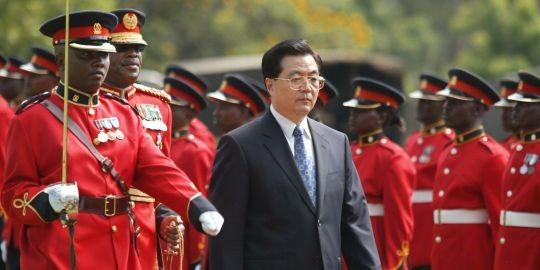 Financial Afrik /Tribune by Francis Journot, published on June 01, 2021. This global paradigm shift would enable the modernization of Africa and would offer some countries the possibility of escaping the Chinese trap of African debt in order to preserve their sovereignty. The installation of infrastructure and industrial tools of often Western companies as well as the creation of a large network of local companies would generate tens of millions of jobs on African soil that would be more remunerative than those in the informal sector. This transformation, which would nevertheless be respectful of the environment, would promote new exchanges between African states and their partners, often French, European, American and sometimes Asian. It would increase the growth of each of them.
Financial Afrik /Tribune by Francis Journot, published on June 01, 2021. This global paradigm shift would enable the modernization of Africa and would offer some countries the possibility of escaping the Chinese trap of African debt in order to preserve their sovereignty. The installation of infrastructure and industrial tools of often Western companies as well as the creation of a large network of local companies would generate tens of millions of jobs on African soil that would be more remunerative than those in the informal sector. This transformation, which would nevertheless be respectful of the environment, would promote new exchanges between African states and their partners, often French, European, American and sometimes Asian. It would increase the growth of each of them.
When ideology prevents the development of Africa and maintains poverty
At international summits, at a time when extreme poverty and famine are wreaking more havoc than ever, Westerners and well-fed Africans frequently explain to a population of 250 million people suffering from malnutrition in an Africa that is virtually devoid of industry and has low CO2 emissions, that the priorities must be digital transformation and a green transition of uncertain contours. Whether this is technocratic thinking, cynicism, dogmatism or ignorance of the African economy, everyone will judge. But the prioritization of insufficient or illusory proposals that will not produce significant effects quickly in economic matters, is likely to delay the development of the continent and worsen poverty.
A model that could meet the aspirations of African youth
At the end of 2020, in an article published on La Tribune Afrique entitled "Sub-Saharan Africa : capitalism could succeed where development aid has failed for 60 years", we questioned the effectiveness of public aid that has exceeded $1,000 billion but has not succeeded in reducing informal employment, which still concerns 85 to 89% of the active sub-Saharan population. Industrial enterprises would provide better-paying jobs. The reasonable increase in production wages that we advocate in our studies on the "International Convention for a Global Minimum Wage" project would also contribute to a rise in the standard of living of the population and accelerate Africa's development. This could respond to the wish of many Africans who would like to make a better living from their work and break away from assistance that is certainly benevolent and often indispensable but that reflects a negative image that they want to change.
Structured plan for industrial regionalization in sub-Saharan Africa
As we have already written in french newspaper Le Figaro, "Reducing our dependence on China is possible !". But only a "Europ-Africa production regionalization plan", realistic and structuring but also taking into account the new geopolitical and geo-economic parameters, could succeed. A financial involvement, even moderate, of each of the countries that would like to strengthen their economic presence to increase their trade with Africa within the framework of the program, would be essential. Companies from these foreign signatory states could benefit from support to facilitate their establishment (recruitment and training, legal, fiscal and administrative assistance, financing, studies, etc.) which would contribute to the attractiveness of sub-Saharan Africa. We will be able to build global industrial schemes within which they can project themselves and which will convince them to move part of their production. It will be necessary to look for sectoral complementarity in order to create efficient and coherent ecosystems. This proximity will also help reduce the transportation of materials or parts within global value chains (GVCs).
A concrete and easily financed program
The cost of building industrial bases, including road, rail, airport or port access, energy supply, telecommunications networks, roadworks, waste management, but also security devices, housing, schools, medical centers and essential shops, would be eligible for funding by major international institutions and donor countries as part of Africa's development. The amount spent for each industrial site that would be built every 2 or 3 years would be around 3/5 billion euros. In contrast to policies or economic proposals, international or local, often hollow and without a future, but which have sclerotised the development of sub-Saharan Africa for 60 years, the "Africa Atlantic Axis" program could on the contrary, be implemented in the medium term if the populations of the African countries most concerned so wish. The international financial institutions could only join this project of progress for Africa. Indeed, this process of industrial integration would increase the budgetary resources of States. It would allow the securing of territories, would raise the purchasing power of populations and would offer enormous development perspectives for a continent whose economic construction would require the energy of all its youth.
Consultant and entrepreneur, Francis Journot is the founder of the United States of Sub-Saharan Africa project and the Program for the Industrialization of Sub-Saharan Africa or Africa Atlantic Axis. He is also the initiator of the International Convention for a Global Minimum Wage and runs the website Collectivité Nationale
![]() Reducing our dependency to China,
Reducing our dependency to China,
it is possible!
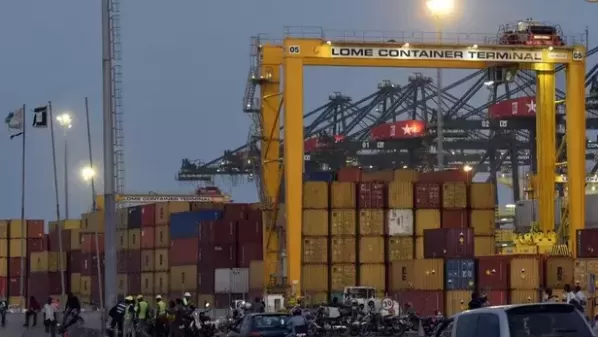 Le Figaro/Tribune by Francis Journot, published on June 08, 2020 - By relying more on its regional market, Europe is able to significantly reduce its dependence on Chinese industry, says Francis Journot.
Le Figaro/Tribune by Francis Journot, published on June 08, 2020 - By relying more on its regional market, Europe is able to significantly reduce its dependence on Chinese industry, says Francis Journot.
Few risks of shortages or sharp price increases
In the light of a crisis that reminds us of the fragility of our existence and a confinement that has made us aware that we can deprive ourselves of over-consumption for two months, it seems certain that we would be able to survive a period of transfer of Chinese industry. Some products that are not always indispensable could become scarce, but let's be reassured, most imports would continue to pour in because companies and their shareholders do not appreciate consumers deserting the stores. Every search for new subcontractors would result in a multitude of competitive service offers around the world, and hundreds of thousands of engineers would want to participate in the development of production processes. As for the vital area of food, European countries have little dependence on the rest of the world. So it is doubtful that we should fear real shortages or a significant increase in the prices of our consumer goods, but we could, on the other hand, consume less but better and rejoice in relocations that would, over the months and years, lift millions of Europeans out of unemployment and poverty.
A new European paradigm based on a broader regionalization of production and trade that includes more Africa.
Rising wages and manufacturing costs in emerging or developing countries accompanied by a drop in direct investments, technology theft and counterfeiting, the environmental cost of transport and consumer demand for more local products, we have been witnessing for several years now to phenomena which indicate or provoke a decline in globalization. Although not yet evident, the Covid-19 crisis and the rise in unemployment could accentuate a trend towards regionalization of trade. Europe could initiate a new European paradigm of regionalization of value or production chains within the framework of the EU or a less political economic community if it disappears. But relocating activities to France would not be easy. One would have to exempt oneself from sclerosing ideologies with their elitist postulate of selecting only the so-called strategic sectors. This has justified the delocalization of other activities and has proved to be erroneous. Manufacturing jobs generated many indirect and induced jobs whose contributions and taxes better financed public spending, moderated the cost of labor, allowed maintaining a better level of technical training that benefited all sectors, including the most strategic, and thus participated in a virtuous economic circle.
The new conception of trade proposed here obviously differs from the unrealistic recommendations of autarky and the end of globalization made by the former Minister of Economy Arnaud Montebourg. For beyond the slogan "made in France" and the theme of reindustrialization regularly exploited for political purposes by personalities in search of publicity and voters but often from government parties whose economic policies have favored deindustrialization, there remains the reality of the cost of labor but also the pitfalls of a highly politicized dogmatic trade unionism and the innumerable norms that discourage industrialists. The mechanisms of mutualization and equalization would be likely to promote the creation of ecosystems and jobs, but a relaxation of European or national treaties and regulations that make the management of French companies more cumbersome would also be desirable.
There are many obstacles to a massive return of jobs in France and sometimes even in Europe.
With a rich market of 500 million consumers, the growth potential in Europe is enormous. The lower-cost European countries would experience full employment, but in other countries we could come up against a mismatch in the supply of industrial jobs for job seekers who are not attracted by these opportunities. In France, skilled labor has virtually disappeared in many industrial sectors, but also in many European countries. The cost of training for each job is often around 20/50 K€, mostly borne by the company, but this does not guarantee that candidates will be able to carry out work for a long time that is often considered to be arduous. Today, small and medium-sized companies in the industry are unable to train more than one or two jobseekers per year. It is doubtful whether European industry will be able to recruit all the necessary staff. Moreover, the level of exports could erode after a few years. China will further reduce imports to cope with unemployment that could weaken power and the USA is showing a strong willingness to relocate since 2017. Western companies established on its soil have brought it the technologies that will enable it to meet all the needs of its consumers. Also, new non-European prospects would be harder to find and each European country would try to pull its own cover in order to gain market share within Europe, as is already often the case today. The luxury goods sector would continue to do well, but there are fears that the number of orders would decline in leading-edge sectors facing growing competition, including China. One could hope for the emergence of European leaders in new fields, but this would take time. Nevertheless, France and the countries of Europe would welcome the reduction in imports and a return to prosperity in many sectors. But after an upturn in activity and a drop in unemployment, the economy could turn in circles and return to low growth and employment rates.
With sluggish growth and unemployment in the EU, poverty and galloping demographics on the neighbouring continent, we are facing many challenges
So we are confronted with these challenges but also many others for which we will have to try to find solutions sooner or later. Among these, the phenomenon of the galloping demography of a continent less than 150 kilometers from the first European coasts, which could have two and a half billion inhabitants in 2050. An important part of them would try to flee misery and hunger by migrating to a weakened Europe, hardly able to offer better living conditions. However, the foundations of our civilization, political and economic, cultural and religious, would not survive. The social and security chaos that could set in could precede or surpass the climate collapse promised by environmentalists who are committed to an ideology of degrowth to which our African friends who are struggling to feed themselves may not fully adhere. So perhaps, in order to solve our growth problems in the years to come but also contribute to poverty reduction in a nearby continent that is experiencing exponential demography, we could reflect on a model that broadens our cooperation with it.
China perverts rather than enriches the African continent
Today, China intends to get its hands on this enormous reservoir of raw materials. But it perverts more than it enriches this continent by flooding it with low-cost products from Asia and thus makes craftsmen or small businesses that used to make local products more precarious. The factories created belonged to companies dependent on Beijing, whose Chinese foremen ran some of the worst paid workers in the world. These low wage levels thus allow China to flood Western countries with low-end products without benefiting the African people in terms of social progress. But this rampant colonization, which is increasingly badly experienced, arouses bitterness.
Eventually, more industrial autonomy
It is essential for Africa to equip itself with the means to ensure the subsistence of its population while taking care to preserve its fauna and flora. Many engineers wishing to see Africa and the Maghreb grow would enthusiastically welcome this transcontinental project of creating joint ventures within sectoral clusters. These new production tools, which would first of all be integrated into European supply chains, would promote the economic development of the countries and would facilitate their access to greater industrial autonomy. The cost of setting up the plants would be covered by the brands or brands to which the products are destined. The companies, organized in collectives, could thus benefit from a mutualization of costs but also from a modularization of production in certain sectors. These activities would provide new local opportunities for young generations currently tempted by immigration to Europe. Funds considered inefficient among those currently allocated to the development and support of countries could be redirected towards the construction of the necessary infrastructures, which would thus benefit everyone, since it seems more relevant to invest upstream by creating jobs and generating an increase in local living standards rather than continually acting downstream.
Indeed, the assistance, although benevolent and often indispensable, nevertheless conveys an image that this continent wishes to erase in order to change the perception of the world and move forward. Profitable and growing groupings of companies would certainly attract global capital that would then abound with new projects and accompany the expansion of the model across the continent to perhaps make it a new Eldorado.
One can think that a rise in the standard of living in Africa would encourage the education of children, the emancipation of women and eventually a reduction in the birth rate.
This prolific partnership for Africa would also be prolific for Europeh witch needs new perspectives. The implementation of the project would require the assistance of many companies with expertise in industrial engineering, energy, construction, digital, training in the many sectors, human resources etc. The number of positions straddling the two continents would be considerable. France has retained privileged links with most countries and would have an important card to play. Subsequently, the African continent could eventually constitute for Europe a new growth relay that would fill a slump in Chinese demand, especially since it has as many inhabitants as China. Their purchasing power is not comparable, but let us remember that at the dawn of this millennium, China's GDP per capita was similar to that of most African countries that it has now undertaken to colonize. It is difficult to grasp the full dimension of such a regionalization project as the implications and possibilities are multiple in terms of employment and wealth creation. Demographic forecasts predict a doubling of the African population within thirty years, but one can think that an increase in the standard of living would encourage the education of children, the emancipation of women and, in the long run, a reduction in the birth rate. A reasonable and evolutionary increase in monthly production wages, which today usually vary between 35 and 200 euros, could accelerate this sociological change.
It would therefore be possible to build an alternative to Chinese dependence. Why settle for maintaining our industries in China, favouring a hegemony that will hinder our freedoms and will certainly expose us sooner or later to the risk of a world war, when a regionalization of trade would give us the opportunity to consume less but better without, given the international competition, making prices soar and would, moreover, offer us economic dynamism and the creation of millions of jobs at a time when unemployment is ravaging Europe while allowing the neighbouring continent to achieve greater social progress.
Consultant and entrepreneur, Francis Journot is the founder of the United States of Sub-Saharan Africa project and the Program for the Industrialization of Sub-Saharan Africa or Africa Atlantic Axis. He is also the initiator of the International Convention for a Global Minimum Wage and runs the website Collectivité Nationale
A global minimum wage to reduce inequality
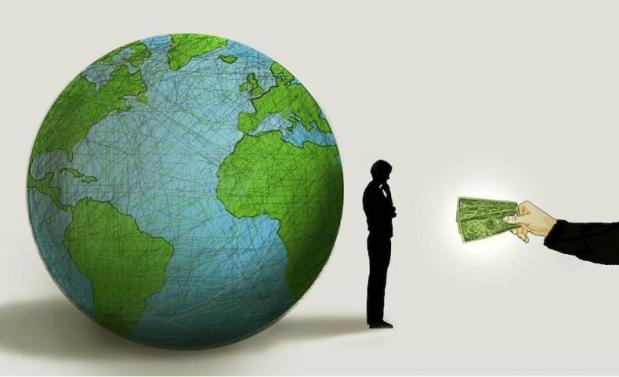 Marianne/Tribune by Francis JOURNOT, published march 16, 2020 - In order to reduce inequalities, the "Patriotic Millionaires" collective proposes a taxation of the richest, which however does not seem to be unanimously supported. Could a reasonable global minimum wage project, which takes into account economic realities, be more convincing?
Marianne/Tribune by Francis JOURNOT, published march 16, 2020 - In order to reduce inequalities, the "Patriotic Millionaires" collective proposes a taxation of the richest, which however does not seem to be unanimously supported. Could a reasonable global minimum wage project, which takes into account economic realities, be more convincing?
 In a letter entitled Millionnaires against pitchforks signed in Davos by 121 personalities, the "Patriotic Millionaires" collective urges its millionaire and billionaire friends around the world to demand higher and fairer taxes in order to reduce "extreme and destabilizing inequalities". The initiative is generous, but it is doubtful whether it alone will significantly reduce poverty and the negative effects of low-cost production on the environment. Moreover, calls for accountability, however sincere, are rarely heeded. We should therefore try another approach to reach this goal, because the recommended philanthropy is obviously commendable, but the working poor, for their part, want a little more equity in the remuneration of their labor.
In a letter entitled Millionnaires against pitchforks signed in Davos by 121 personalities, the "Patriotic Millionaires" collective urges its millionaire and billionaire friends around the world to demand higher and fairer taxes in order to reduce "extreme and destabilizing inequalities". The initiative is generous, but it is doubtful whether it alone will significantly reduce poverty and the negative effects of low-cost production on the environment. Moreover, calls for accountability, however sincere, are rarely heeded. We should therefore try another approach to reach this goal, because the recommended philanthropy is obviously commendable, but the working poor, for their part, want a little more equity in the remuneration of their labor.
The International Convention for a Global Minimum Wage project, which was born in 2013, could provide solutions. Reasonable and progressive, it advocates pragmatism and recommends reintroducing balances upstream of economic mechanisms. Today, this could be the only way to both reduce inequalities in the world and the ravages of over-consumption on the environment. This global minimum wage, which would include several levels to take into account economic disparities, could be implemented in most countries in less than 7 or 8 years.
First Attempts
In the aftermath of the First World War, the world minimum wage became a priority and was one of the first projects of the ILO created in 1919 under the aegis of the Treaty of Versailles. Researchers were quick to identify the obvious first steps towards a world minimum wage based on a proportion of the median wage or income of each country (50 or 60% often cited) and the more or less similar Living Wage. But it is possible that ILO economists became aware of certain risks before the 1928 Convention. Indeed, taking into account a median wage, whether high or low, in the calculation of a local minimum wage does not guarantee that a State will then be able to cope in certain cases with an increase in the remuneration of its civil servants or that the rate of inflation that could be caused by a generalization of the minimum wage will be contained and will hardly aggravate situations of poverty. The danger of generating unrest and the bankruptcy of certain States has certainly tempered the desire for social progress and prompted caution. The Convention concerning the Creation of Minimum Wage-Fixing Machinery therefore left the signatory States free to decide: "Each Member which ratifies this Convention shall be free to determine the methods for determining minimum wages and the detailed rules for their application". 99 countries have ratified a convention that has not prevented inequalities from growing. The global minimum wage never saw the light of day and has been dormant ever since.
The danger of generating unrest and the bankruptcy of certain States has certainly tempered the desire for social progress and prompted caution. The Convention concerning the Creation of Minimum Wage-Fixing Machinery therefore left the signatory States free to decide: "Each Member which ratifies this Convention shall be free to determine the methods for determining minimum wages and the detailed rules for their application". 99 countries have ratified a convention that has not prevented inequalities from growing. The global minimum wage never saw the light of day and has been dormant ever since.
Failure of the European minimum wage
The idea of a European minimum wage has not been specifically theorised for the European Union by some eminent researcher or by a group of elected representatives, but has simply been inspired by the work of the ILO.  This political project emerged in the 1990s in order to enhance the social Europe dear to its founding fathers but has since come up against the structural disparities of the 27 countries of the European Union. Nevertheless, it is understandable that the governments of the lower-cost European countries, like their more distant competitors, are reluctant to raise wages and thus expose themselves to a reduction in their competitive advantage. It is therefore essential, in the context of globalisation, to include this issue in a broader process of global minimum wages.
This political project emerged in the 1990s in order to enhance the social Europe dear to its founding fathers but has since come up against the structural disparities of the 27 countries of the European Union. Nevertheless, it is understandable that the governments of the lower-cost European countries, like their more distant competitors, are reluctant to raise wages and thus expose themselves to a reduction in their competitive advantage. It is therefore essential, in the context of globalisation, to include this issue in a broader process of global minimum wages.
A structured concept for a global minimum wage based on concrete financial resources
In order to convince the countries concerned, a clear, realistic and economically structuring project should be proposed. If we consider that the question of financing the world minimum wage remains one of the main stumbling blocks for States, we must resolve to intervene only on wages that are likely to benefit from resources that allow it, first and foremost those of workers producing items for export. For example, a differentiated, gradual and programmed increase over several years in monthly wages, currently $25 in Ethiopia, $90 in Bangladesh, $170 in Vietnam or $300 in Bulgaria, would only impact the price of clothes sold most often to European or American consumers by a few tens of cents or even a few dollars on more expensive items. A timetable, based on comprehensive analyses, would prepare the conditions that would then enable international agreements to be signed. The EU and international institutions could share data or collaborate more widely on the basis of a common methodology. Partnerships with research departments of prestigious universities could also help to enrich this content. Positioning the cursor on minimum wage targets which might appear unambitious but which few countries could therefore refuse, would certainly not be likely to instantly change the living conditions of the 300 million working poor who live on less than $1.8 euros a day or of those who receive little more. On the other hand, this increase in remuneration, which would, however, initially concern only a part of the sectors of activity and populations, would secure this change and, above all, would make it possible to finally get a project for a world minimum wage on the rails, which should have 5 to 7 levels of compatibility.
A non-ideological project
Inequalities and "living wage" are part of the struggles or are favorite themes of NGOs which receive a financial windfall of several tens of billions of euros every year. But local actions can only partially solve these problems because the globalized economy requires us to think on a different scale first. The subjects of the global minimum wage and inequalities are, unfortunately, most often exploited for political, ideological or pecuniary ends. For many NGOs and medias (The Guardian, Jacobin, The Nation, the New Republic, Inequality, etc.), they constitute contents that tend to testify to their humanity or their commitment. But the extreme demands and the counter-productive publication of unrealistic ideological proposals, whose manicheism sometimes has nothing to envy to communism, provide arguments to the detractors of this cause which is thus discredited and immobilized. These opinion leaders, whose role-playing or lack of foresight can be regretted, ultimately do a disservice to those they claim to defend.
The subjects of the global minimum wage and inequalities are, unfortunately, most often exploited for political, ideological or pecuniary ends. For many NGOs and medias (The Guardian, Jacobin, The Nation, the New Republic, Inequality, etc.), they constitute contents that tend to testify to their humanity or their commitment. But the extreme demands and the counter-productive publication of unrealistic ideological proposals, whose manicheism sometimes has nothing to envy to communism, provide arguments to the detractors of this cause which is thus discredited and immobilized. These opinion leaders, whose role-playing or lack of foresight can be regretted, ultimately do a disservice to those they claim to defend.
After 7 or 10 years if we count the previous related work, the International Convention for a Global Minimum Wager project, noticed as early as 2013 by American academics, now benefits from a worldwide network of nearly 7,000 experts, most of whom are likely to be in agreement of the project or at least in favor of a reflection on the proposals put forward.  Most of them hold a PhD in economics or finance and several hundred of them wish to participate in the studies. Among them are many researchers and professors who teach in American Ivy League universities (Harvard, Yale, Columbia, Cornell...) or at Stanford, Berkeley, MIT and other prestigious schools around the world, but also nearly two thousand economists working in international institutions such as the UN, the WTO, the World Bank, the IMF, the World Economic Forum or the ILO as well as managers and financiers of large companies, banks or investment funds who know as we all do that increasing inequality can be dangerous.
Most of them hold a PhD in economics or finance and several hundred of them wish to participate in the studies. Among them are many researchers and professors who teach in American Ivy League universities (Harvard, Yale, Columbia, Cornell...) or at Stanford, Berkeley, MIT and other prestigious schools around the world, but also nearly two thousand economists working in international institutions such as the UN, the WTO, the World Bank, the IMF, the World Economic Forum or the ILO as well as managers and financiers of large companies, banks or investment funds who know as we all do that increasing inequality can be dangerous.
A global minimum wage offer that is difficult to refuse
So what leader of low-cost countries, inside or outside Europe, could publicly oppose a convention offering the opportunity for his fellow citizens working for export to the major, mainly Western, consumer markets to gradually benefit from better pay and living conditions that would mechanically, over the years, extend to all workers and then benefit the entire population without significantly affecting competitiveness if the increases are then coordinated on a global scale. Given the sectoral nature of these increases, they would not cause inflation to soar. Nor would the pact force governments to increase public spending, since the project is not based on a utopian and sudden general increase in wages. Environmental resources and natural habitat would be less strained. A generation tempted by immigration would discover new opportunities and sometimes choose to participate in local expansion. Supernatality exacerbates food insecurity, which today affects nearly one billion people worldwide. Thus, measures would often promote the education of children, the emancipation of women and, ultimately, a reduction in the birth rate and poverty. As the signatories of the Millionnaires against pitchforks letter warn, we must act before it is too late.
Consultant and entrepreneur, Francis Journot is the founder of the United States of Sub-Saharan Africa project and the Program for the Industrialization of Sub-Saharan Africa or Africa Atlantic Axis. He is also the initiator of the International Convention for a Global Minimum Wage and runs the website Collectivité Nationale
![]() It's time to stop telling the tale
It's time to stop telling the tale
of the European minimum wage
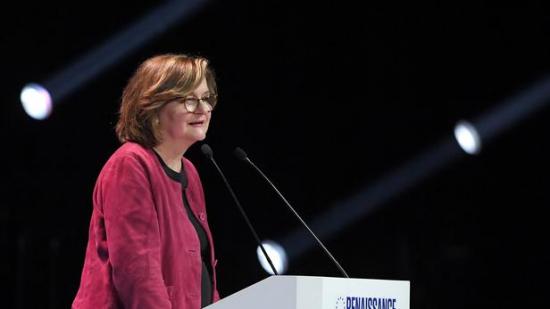 Nathalie Loiseau, head of the list of the french presidential party LREM during the European elections
Nathalie Loiseau, head of the list of the french presidential party LREM during the European elections
Le Figaro/Tribune by Francis Journot, published mai 14, 2019 - Francis Journot, initiator of the "International Convention for a Global Minimum Wage" project, explains why it is illusory to believe in the "European minimum wage" by arguing that the project is incompatible with the structural disparities of the 28 countries of the European Union. He advocates for a global minimum wage in other ways.
The theory of a European or global minimum wage based on a proportion of each country's median wage has always proved unconvincing and few economists still support it today. The International Labour Organization (ILO) has renounced the introduction of this model for several decades. The European Commission is now avoiding this subject, which annoys Member States and prefers to refer to a more general notion of "European economic and social convergence" or the equally sibylline objective of a "European foundation of social rights".
But French President Emmanuel Macron, certainly short of progressive ideas, woke up this old sea snake. However, the project is incompatible with the structural disparities of the 28 countries of the European Union and would be hazardous. Candidates for election to the European parliament are now engaged in a real competition and the recommendations vary almost from single to double: Nathalie Loiseau, head of the list of the presidential party LREM, wants a European minimum wage corresponding to 50% of the median salary of each EU country and a social policy expert teaching at the ENA and affiliated to LREM, recommends, in an article published in newspaper Liberation, 40 to 50%. The Generation S lists of Benoit Hamon, PC led by Ian Brossat and EELV of Yannick Jadot opt for 60%. Raphaël Glucksmann, head of the list Public Policy and PS wants 65% while Manon Aubry of LFI outbids with 75%.
The candidates did not seem to consider it useful to carry out simulations or perhaps they preferred demagogic simplification to the rigour of the figures. Indeed, instead of the desired increase in the standard of living and the targeted convergence, we could see, on the contrary, depending on the rate recommended, a decrease in half of the countries in minimum wages, some of which are already among the lowest in Europe or often an increase in the differential between minimum wages. Moreover, if we consider that public expenditure in the EU countries is on average close to 50% of GDP, a significant proportion of which is represented, depending on the structure and outsourcing of services, by the cost of public or private jobs, it appears that this measure could generate an increase in the public deficit in some countries and, moreover, would sometimes cause them to exceed the authorised limit of a 3% public deficit. The inflation risk that can be encountered when the minimum wage is raised is also not anticipated. However, there is no cause for concern as this project would probably never achieve the required unanimity within the EU and will be buried until the next European election, but the fanciful treatment of this major economic issue may be appalling.
This idea of a European minimum wage, which appeared in the 1990s, brandished to promote the social Europe dear to its founding fathers, was not specifically theorized for the European Union by any distinguished researcher or by a group of elected officials, but simply borrowed from the International Labour Organisation. But at a time when the EU had only 12 to 15 Member States with broadly similar living standards and a reasonable rate of new accessions, the option was conceivable (France, West Germany, Italy, Belgium, Luxembourg and the Netherlands when the EEC was created in 1958, Denmark, Ireland and the United Kingdom in 1973, Greece in 1981, Spain and Portugal in 1986, East Germany in 1990, Austria, Finland and Sweden in 1995). However, the number of Member States doubled over the next two decades and the homogenisation of the European Union by this means now seems utopian. However, it is understandable that governments in lower-cost European countries, like their more distant competitors, are reluctant to raise wages and thus expose themselves to a reduction in their competitive advantage. This should be taken into account when developing a draft minimum wage.
It is therefore essential, in the context of globalisation, to examine the subject of the minimum wage in Europe from a broader perspective. After 6 years of work and nearly a decade, if we include the related subjects that initiated this reflection, the "International Convention for a Global Minimum Wage" project, which could reintroduce balances upstream of international economic mechanisms, now benefits from a network of several thousand economists throughout the world, most of them experienced and holding a doctorate in economics. The concept integrates economic realities and is based on fundamental parameters (financial flows, budgetary capacity of States, nature of trade, industrial activity, etc.) to propose a consensual and pragmatic timetable. In this field, it could constitute today the only viable proposal likely to reduce inequalities but also the damage of consumerism on the environment at a time when the main current response seems to be the multiplication of "climate" taxes that are as unfair as they are inefficient but above all demanded by parties and NGOs for a political and ideological ecology. But the instrumentalization of the themes of minimum wages or ecology is counterproductive and is to the detriment of more objective economic approaches and rational solutions.
Consultant and entrepreneur, Francis Journot is the founder of the United States of Sub-Saharan Africa project and the Program for the Industrialization of Sub-Saharan Africa or Africa Atlantic Axis. He is also the initiator of the International Convention for a Global Minimum Wage and runs the website Collectivité Nationale
_______________________________________________________
![]() European and global minimum wage:
European and global minimum wage:
Open letter to the President of the
European Commission Jean Claude Juncker
 Le Figaro/Tribune by Francis Journot, published april 11, 2019 - Francis Journot, initiator of the "International Convention for a Global Minimum Wage" project, publishes an open letter in favour of a "global minimum wage". He believes that it could reduce the damage that consumerism does to the environment.
Le Figaro/Tribune by Francis Journot, published april 11, 2019 - Francis Journot, initiator of the "International Convention for a Global Minimum Wage" project, publishes an open letter in favour of a "global minimum wage". He believes that it could reduce the damage that consumerism does to the environment.
The European Commission's Directorate General for Employment and Social Affairs, which is in charge of replying to my recent letter, recalls the framework of the "European Foundation of Social Rights" proclaimed on 17 November 2017 in Gothenburg and the principle relating to wages, which mainly provides that "appropriate minimum wages must be guaranteed, at a level allowing the needs of workers and their families to be satisfied".... However, the Commission is well aware of the impossibility of establishing a European minimum wage within the current legal framework defined by the Treaties and regrets: "the competence to set wages and minimum wages lies mainly with the Member States" and "any proposal for a European framework for minimum wages should be approved by the Member States". So, if we add to this, the opposition of the likely future German Chancellor Annegret Kramp-Karrenbauer (AKK) to the model based on a percentage of the median salary, recently proposed by the French President Emmanuel Macron or by the EU previously, to which many Member States are also opposed, we can then consider that you currently have no effective solution in this matter and it seems urgent to change the method.
The International Labour Organization (ILO) has been trying to establish a global minimum wage since its foundation in 1919 and the EU has been trying in Europe for 20 years. The UN denounces consumerism and the destruction of the environment. The World Bank, the IMF, the WTO and the World Economic Forum have expressed concern about rising inequality. It is therefore necessary to combine actions. However, international institutions and the EU are trapped in excessively cumbersome protocols and room for manoeuvre is limited. Examples include the ILO's tripartite structure or the principle of unanimity among EU members. So how do we implement it?
The "International Convention for a Global Minimum Wage" project
In a globalised world, competition between low-cost countries is obviously global and we must therefore understand these issues as a whole. Wages in the EU cannot be increased unilaterally without risking affecting the economies of some of its member countries. But at a time when everyone regrets the damage that consumerism has done to the environment and the rise in inequality, States around the world could, as part of a global consensus, be inclined to take a step towards a more virtuous model together. To do this, we would have to propose a realistic timetable based on personalised studies.
The positioning of the cursor on minimum wage targets that may appear unambitious but that few countries could therefore refuse, would certainly not be likely to instantly change the living conditions of the 300 million working poor who live with less than 1.7 euro ($2) per day (source ILO) or those who receive barely more. On the other hand, this increase in remuneration, which would, however, initially concern only a part of the sectors of activity and populations, would secure this change and would, above all, make it possible to finally set in motion a project for a global minimum wage that has been dormant for nearly a century. Without it, the European minimum wages, particularly in the consumer goods manufacturing industry, would prove complicated or even impossible.
It would therefore be appropriate to create a more agile and private-law dedicated structure, capable of pooling will and skills, but duly mandated by the EU and international institutions to prepare the conditions that will then allow the signature of international agreements.
A strategy based on both economic expertise and a relevant communication could promote the establishment of a global minimum wage with 5 to 7 levels of compatibility. In continuity with the work already carried out and the leads identified since 2013 in the framework of the "International Convention for a Global Minimum Wage" project, more than 200 researchers could carry out analyses of the economic parameters of each of the countries concerned. Among these, many recognized experts would work, already experienced in these issues and often belonging to our large global network which now includes nearly 4,000 economists (most of whom hold a PhD in economics). Their counterparts in the EU and international partner institutions could share data or collaborate more broadly on the basis of a common methodology. The roles of the ILO and the WTO (World Trade Organization) could prove decisive.
Research departments at prestigious universities could enrich this content. The full reports would sometimes include several hundred pages of analysis per country and projections whose exclusively technical and non-partisan treatment and interpretation would guarantee their objectivity. These would then be used to draw up the fair schedules proposed to States. They should make it possible to limit as far as possible the risks of economic dysfunction and to contain inflation phenomena.
The other essential aspect of our mission would be to explain this little-known and complex subject to as many people as possible. To be successful, the minimum wage must be perceived by all countries as an opportunity for social and economic progress, sometimes even as protection. For example, in Europe, Eastern European countries would understand that in the absence of new rules, the "new silk roads" could destroy their industries without lifting other distant populations out of poverty. Indeed, Chinese workers' wages have increased considerably, but Chinese industry now often uses labour located outside its borders and sometimes pays 40 euros ($50) for 200 hours a month. A wage increase for all workers working for export to major consumer markets could most often lead to an increase in the quality of manufacturing and materials used. This increase in value added, which would offset a decrease in export volumes, would also reduce consumerism. The means of communication and teaching deployed would include holding 100 to 200 conferences around the world in 2 to 3 years, providing real-time information on the progress of the project, increasing the number of forums in the international press and, more generally, using the most effective tools.
At a time when we are all concerned about the future of humanity and the loss of biodiversity, the "global minimum wage" could rebalance economic mechanisms and thus reduce the ravages of consumerism on the environment.
Consultant and entrepreneur, Francis Journot is the founder of the United States of Sub-Saharan Africa project and the Program for the Industrialization of Sub-Saharan Africa or Africa Atlantic Axis. He is also the initiator of the International Convention for a Global Minimum Wage and runs the website Collectivité Nationale
__________________________________________
There will never be a European
minimum wage
 The "European minimum wage" advocated by French President Macron could be a hollow slogan
The "European minimum wage" advocated by French President Macron could be a hollow slogan
Le Figaro/Tribune by Francis Journot, published march 11, 2019 - While in his letter to Europeans, French President Emmanuel Macron advocated a "European minimum wage", Francis Journot believes that this proposal is inconceivable, and explains that it is only on a global scale that it is possible to imagine such a system.
In his manifesto "for a European renaissance" published on 4 March in the 28 EU countries, the French President Emmanuel Macron advocated "a European minimum wage, adapted to each country and discussed collectively each year". 22 countries already have a minimum wage ranging from 260 to 2,000 euros, which does not always guarantee decent living conditions, and conventional minima in countries without a minimum wage sometimes provide their workers with acceptable incomes. The heterogeneity of wages within the EU is therefore undeniable. Yes, but the slogan "European minimum wage" which appeared in the 1990s to announce a new social Europe and which is now being recycled by Emmanuel Macron, is not a project in its own right.
There will be no more European minimum wage than Asian or African minimum wage
In a globalised world, it is essential to understand these issues as a whole. Competition between low-cost countries is global. Also, few countries would tolerate economic interference in the name of wage homogenisation in the EU, which could not only reduce their competitiveness towards and with their European neighbours but also increase their wage cost differential with more distant countries (for example Ethiopia with sometimes monthly wages of 40 euros for nearly 200 hours worked). On Saturday, March 9, the new CDU president Annegret Kramp-Karrenbauer (AKK), and perhaps future chancellor of a Germany that has many of its subcontractors in lower-cost eastern european countries, obviously expressed her disagreement.
On the other hand, at a time when everyone is concerned about the rise in inequality and the damage consumerism is causing to the environment, States could, within the framework of a global consensus, advocated in the concept of the "International Convention for a Global Minimum Wage", be more inclined to take a step towards a more virtuous model together.
After the First World War, the world minimum wage was one of the first projects of the ILO (International Labour Organisation), created in 1919 under the aegis of the Treaty of Versailles. Researchers most certainly quickly identified the most obvious ways at first glance, a global minimum wage based on a proportion of each country's median wage or income (50 or 60% often cited) and the living wage more or less close. These proposals have since been taken up by the defenders of the global minimum wage and by Emmanuel Macron today. But it can be assumed that ILO economists became aware of certain risks before the 1928 Convention. Indeed, the inclusion of a high or low median wage in the calculation of a local minimum wage does not guarantee that a State can then be able to cope in certain cases with an increase in the remuneration of its civil servants or that the inflation rate that could result from a generalisation of the minimum wage is contained and does not aggravate poverty situations. The danger of generating unrest and the bankruptcy of some states has certainly tempered the desire for social progress and encouraged caution. Also the Convention concerning the Creation of Minimum Wage-Fixing Machinery left it to the signatory States: "Each Member which ratifies this Convention shall be free to decide the nature and form of the minimum wage-fixing machinery, and the methods to be followed in its operation". 99 countries have ratified a convention that has not prevented inequality from growing. The global minimum wage has never seen the light of day.
The International Convention for a Global Minimum Wage project was first published in 2013 and now benefits from a global network of 3000 economists who know the proposals. Among these are many researchers and professors from prestigious American universities (Harvard, Stanford, Yale, MIT, Columbia, Berkeley and many others) but also several hundred economists working in international institutions such as the UN, WTO, IMF or ILO.  This project, which could be the only viable option for a global or European minimum wage, was sent on 19 February 2019 to the President of the European Commission Jean Claude Juncker. The proposal highlighted the difficulty of creating a European minimum wage outside a broader global minimum wage framework and suggested that the EU should take part in achieving this ambitious objective alongside international institutions. President Juncker has instructed the Commission's Director General for Employment and Social Affairs, Mr Joost Korte, to study the points raised. This measured concept with several levels of compatibility, offering a secure progressiveness and based on multiple parameters, would considerably reduce the risks of economic dysfunctions that could be feared when setting up a minimum wage. The theme of the European minimum wage advocated by Emmanuel Macron is certainly intended above all to attract voters concerned about social progress, but it is not certain that the choice of a minimum wage model that has proved impossible to implement for nearly a century is the right one.
This project, which could be the only viable option for a global or European minimum wage, was sent on 19 February 2019 to the President of the European Commission Jean Claude Juncker. The proposal highlighted the difficulty of creating a European minimum wage outside a broader global minimum wage framework and suggested that the EU should take part in achieving this ambitious objective alongside international institutions. President Juncker has instructed the Commission's Director General for Employment and Social Affairs, Mr Joost Korte, to study the points raised. This measured concept with several levels of compatibility, offering a secure progressiveness and based on multiple parameters, would considerably reduce the risks of economic dysfunctions that could be feared when setting up a minimum wage. The theme of the European minimum wage advocated by Emmanuel Macron is certainly intended above all to attract voters concerned about social progress, but it is not certain that the choice of a minimum wage model that has proved impossible to implement for nearly a century is the right one.
Consultant and entrepreneur, Francis Journot is the founder of the United States of Sub-Saharan Africa project and the Program for the Industrialization of Sub-Saharan Africa or Africa Atlantic Axis. He is also the initiator of the International Convention for a Global Minimum Wage and runs the website Collectivité Nationale
_____________________________
![]() After 40 years of failure, climate conferences
After 40 years of failure, climate conferences
must change their strategy!
Le Figaro/Tribune by Francis Journot, published january 31, 2019 - The first Climate COP was organised by the UN in Geneva in 1979. This year also saw the completion of the Tokyo Round under the GATT (General Agreement on Tariffs and trade established in 1947). This decisive step in the first free trade treaty in history has led to an unprecedented acceleration in low-cost production and consumerism, but also in its perverse effects on the environment. We will not succeed in repairing this damage, but after the failure of the COP over the past 40 years, we must nevertheless try again to reconcile free trade, poverty reduction and environmental protection. ?
Defiance and green washing at COP 24
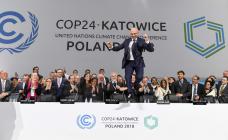 In December 2018, COP 24 was expected to finalize the 2015 Paris agreements, but judging by the absence of most of the 138 heads of state and government who were awaited and a disappointing result, we can only observe mistrust towards the climate strategy. But do the Paris agreements still make sense when they are ignored by the world's leading power and trampled underfoot by the second, obsessed with maintaining high growth and above all eager for industrial opportunities such as electric batteries, solar panels and wind turbines, for which it now holds monopolies? The other countries are not virtuous either. Germany, the largest economy in the EU, like many other countries, continues to invest in the coal sector, which accounts for 44% of global greenhouse gas emissions. This industry took the opportunity to do its green washing and the conference was sponsored by the Polish JSW, Europe's leading coal producer. The textile industry also wanted to improve its image because it ranks second among the most polluting industries behind the oil industry and has contributed, since the advent of fast fashion, to hundreds of ecological disasters. Every year, it releases 500 000 tonnes of microfibres into the oceans and still uses working conditions close to slavery with monthly wages sometimes below $60 or $120. Represented by 43 fashion groups, it has signed a charter to reduce its GHG emissions by 2050. However, the number of clothes and accessories manufactured has doubled in 15 years to reach 100 billion items per year and 10% of CO2 emissions. These figures could double again over the next 20 or 30 years according to the UN Environment: "If nothing changes, by 2050 the fashion industry will use up a quarter of the world's carbon budget".
In December 2018, COP 24 was expected to finalize the 2015 Paris agreements, but judging by the absence of most of the 138 heads of state and government who were awaited and a disappointing result, we can only observe mistrust towards the climate strategy. But do the Paris agreements still make sense when they are ignored by the world's leading power and trampled underfoot by the second, obsessed with maintaining high growth and above all eager for industrial opportunities such as electric batteries, solar panels and wind turbines, for which it now holds monopolies? The other countries are not virtuous either. Germany, the largest economy in the EU, like many other countries, continues to invest in the coal sector, which accounts for 44% of global greenhouse gas emissions. This industry took the opportunity to do its green washing and the conference was sponsored by the Polish JSW, Europe's leading coal producer. The textile industry also wanted to improve its image because it ranks second among the most polluting industries behind the oil industry and has contributed, since the advent of fast fashion, to hundreds of ecological disasters. Every year, it releases 500 000 tonnes of microfibres into the oceans and still uses working conditions close to slavery with monthly wages sometimes below $60 or $120. Represented by 43 fashion groups, it has signed a charter to reduce its GHG emissions by 2050. However, the number of clothes and accessories manufactured has doubled in 15 years to reach 100 billion items per year and 10% of CO2 emissions. These figures could double again over the next 20 or 30 years according to the UN Environment: "If nothing changes, by 2050 the fashion industry will use up a quarter of the world's carbon budget".
Why climate COP cannot succeed
The high number of climate septic countries and the economic influence of many of them, make these world summits irremediably doomed to failure. The very title of the Climate Conference, which presupposes anthropogenic origin, and the content of the Paris Agreements, which focus on global warming, are counterproductive. They neglect the divisions and relegate the issue of other environmental problems which could more easily federate, to the background. The IPCC's alarmist report did not reduce the camp of scepticism and UN Secretary General Antonio Guterres had to extend the last COP by 28 hours to obtain some non-binding commitments.
The divide will not disappear at the next COP and perhaps it is also necessary to break with an ideological and manichean vision that encourages a "North-South" opposition. The industry developed mainly from the beginning of the 20th century, but the damage caused to the environment has been mainly over the last four or five decades.
Also, some States consider that in a context of permanent economic war exacerbated by the globalization promoted by the GATT (General Agreement on Tariffs and trade) and then the WTO, it is inconsistent to reproach them now for having followed this economic model which, 40 years ago, was also favoured by emerging or developing countries, even if some then benefited much more than others. At the end of the Tokyo Round in 1979, 102 signatory countries joined this choice of society that promoted growth and promised prosperity. The agreements then covered 300 billion dollars of trade instead of 40 billion in the previous round. Admittedly, everyone legitimately wanted development and poverty reduction for their country, but the risk of disastrous consequences, including the destruction of the environment, biodiversity and an increase in CO2 emissions, was already known. 60 other States joined them over the following decades. It is not surprising that the developed countries of the North, now judged by the Paris agreements, which are responsible for global warming and must therefore finance the energy transition of the countries of the South to the tune of 100 billion dollars per year from 2020, are not rushing to these global meetings or reluctant to write cheques, especially since a significant proportion of them do not feel responsible for the climate. It would be more consensual to rename the COP. A less ideological content that no longer confuses the various subjects, with new proposals and new insights into the less cleaved and concrete themes of demographic risk, environmental devastation and species extinction that no one can dispute, would make these conferences more credible and make it possible to combat GHG emissions more effectively.
Energy transition and electric cars: sustainable solutions or illusion?
It is regrettable that political parties and ecology NGOs have taken up the theme of global warming as their main focus and as a tool to influence domestic policies. This one now phagocytes the environmental debate. The Proposals that seem to be driven more by political ideology than by an interest in humanity often appear unrealistic. They are far from unanimous when they demand ever more energy taxes against consumers and businesses. The speech advocates the closure of fossil fuel power plants, but also in some countries of nuclear power plants that provide low-carbon electricity. But do we now have the necessary tools for a transition? Fossil fuels are polluting and nuclear waste difficult to store, but solar and wind energy can currently only provide complementary solutions in developed countries, given their intermittent nature.  However, the gradual adoption of this economic model, whose relevance has never been demonstrated, could lead to a significant increase in energy prices. It is also worth being cautious about the global ecological gain that could be achieved by apparently cleaner cars but whose electricity would in fact often come from coal, fuel oil or gas in neighboring countries or not. Emissions would decrease in metropolitan areas of countries with nuclear power plants, but pollution crosses borders. We can also fear the ecological risk of an anticipated replacement in a few years, of a large part of a fleet of nearly a billion cars in working order, with regard to the extraction of the necessary raw materials, the GHG emissions that would be generated by the production of billions of tons of materials, the management of car waste and new electric batteries that we do not yet know how to recycle and a ballet of container carriers that would also contribute to environmental pollution. The arrival on the market of tens of millions of additional cars per year, often subsequently exported (currently 4 to 5 million European vehicles are exported to Africa each year), would contribute to the suffocation of new cities.
However, the gradual adoption of this economic model, whose relevance has never been demonstrated, could lead to a significant increase in energy prices. It is also worth being cautious about the global ecological gain that could be achieved by apparently cleaner cars but whose electricity would in fact often come from coal, fuel oil or gas in neighboring countries or not. Emissions would decrease in metropolitan areas of countries with nuclear power plants, but pollution crosses borders. We can also fear the ecological risk of an anticipated replacement in a few years, of a large part of a fleet of nearly a billion cars in working order, with regard to the extraction of the necessary raw materials, the GHG emissions that would be generated by the production of billions of tons of materials, the management of car waste and new electric batteries that we do not yet know how to recycle and a ballet of container carriers that would also contribute to environmental pollution. The arrival on the market of tens of millions of additional cars per year, often subsequently exported (currently 4 to 5 million European vehicles are exported to Africa each year), would contribute to the suffocation of new cities.
When the pretext of ecology is used for taxation
 The carbon tax, which is based on the polluter pays principle (PPP) that appeared in 1972, is proving inefficient. International groups often manage to avoid it and, above all, it increases the burden on local businesses and consumers in 21 countries, 17 of which are located in Europe, without reducing consumerism. In France, the "yellow vests" revolt began following a planned annual increase of €3.7 billion in fuel taxes presented to finance the energy transition. But of the 37.7 billion euros that were to be collected in 2019 under TICPE (domestic consumption tax on energy products), 7.2 billion euros or only 19.1% was allocated to the transition. It is not surprising that motorists who are already struggling to pay for food and vital energy rise up when the government wants to force them into debt for electric cars or new boilers.
The carbon tax, which is based on the polluter pays principle (PPP) that appeared in 1972, is proving inefficient. International groups often manage to avoid it and, above all, it increases the burden on local businesses and consumers in 21 countries, 17 of which are located in Europe, without reducing consumerism. In France, the "yellow vests" revolt began following a planned annual increase of €3.7 billion in fuel taxes presented to finance the energy transition. But of the 37.7 billion euros that were to be collected in 2019 under TICPE (domestic consumption tax on energy products), 7.2 billion euros or only 19.1% was allocated to the transition. It is not surprising that motorists who are already struggling to pay for food and vital energy rise up when the government wants to force them into debt for electric cars or new boilers.
Economic shortages and upheavals
The environment pays a heavy price for every item produced and it is easy to imagine, given the demographics, that the resources of our planet will quickly run out. If we take a simple T-shirt, the carbon footprint is about 10 kilos from production to destruction, growing cotton can require 3,000 liters (792.5 gallons) of water and its journey can reach several tens of thousands of miles.  In the field of metals, "99.9% of theoretical resources will remain untapped" according to physicists Robert Underwood Ayres and Brian Skinner (MIT). The rapid decline in reserves over the past 50 years, the criticality or predicted scarcity in the coming years and decades of some 20 rare and precious metals now essential to the exponential production of the electronics industry, may give rise to fears of a future impact on a highly digitalized and increasingly automated global economy. The economist and mathematician Nicholas Georgescu-Roegen warned as early as 1979 "It is an illusion of linear thinking, modern mythology of progress and development to believe this abundance without ecological consequences and without limits." Shortages would upset our daily lives and could cause chaos much faster than global warming. States, populations and companies would suffer the effects of repeated financial crashes and conflicts would increase. We must save our reserves to delay this damage, but perhaps we will escape a future of science fiction, dehumanized and populated by machines.
In the field of metals, "99.9% of theoretical resources will remain untapped" according to physicists Robert Underwood Ayres and Brian Skinner (MIT). The rapid decline in reserves over the past 50 years, the criticality or predicted scarcity in the coming years and decades of some 20 rare and precious metals now essential to the exponential production of the electronics industry, may give rise to fears of a future impact on a highly digitalized and increasingly automated global economy. The economist and mathematician Nicholas Georgescu-Roegen warned as early as 1979 "It is an illusion of linear thinking, modern mythology of progress and development to believe this abundance without ecological consequences and without limits." Shortages would upset our daily lives and could cause chaos much faster than global warming. States, populations and companies would suffer the effects of repeated financial crashes and conflicts would increase. We must save our reserves to delay this damage, but perhaps we will escape a future of science fiction, dehumanized and populated by machines.
Create economic mechanisms to consume less but better
Nothing seems to be able to moderate over-consumption. Climate marches and petitions, which, although mediatized, only mobilize a tiny part of the population. They have no influence on a deregulated free trade model that favors low-cost production and an imposed offer to which consumers generally comply. The carbon tax is rejected by most countries. A reintroduction of tariff or non-tariff barriers is unlikely in the short term, considering the supply chains of products often made in the world and the possible sudden drops in growth that would destabilize the economies of many countries. As for the COP, they have failed for 40 years. So are we at a dead end? However, in order to reduce the damage,  it is imperative that we think of pragmatic economic solutions that are quickly operational and, above all, capable of bringing people together. In a globalized economy, the solutions are mainly global and downstream taxation has shown its limits. In order to reduce our consumption of disposable or obsolete products, we could use economic mechanisms upstream of production that could guide industrial companies towards a revaluation of their production. If we choose the example of fashion, when the labor cost is insignificant, the materials used are often of poor quality. These low-cost products, resold as low and mid-range but sometimes high-end, first offered with a high coefficient, are often then sold off or commonly destroyed. An increase in the wage cost could generate a new look, a valuation of products and a decline in the disposable.
it is imperative that we think of pragmatic economic solutions that are quickly operational and, above all, capable of bringing people together. In a globalized economy, the solutions are mainly global and downstream taxation has shown its limits. In order to reduce our consumption of disposable or obsolete products, we could use economic mechanisms upstream of production that could guide industrial companies towards a revaluation of their production. If we choose the example of fashion, when the labor cost is insignificant, the materials used are often of poor quality. These low-cost products, resold as low and mid-range but sometimes high-end, first offered with a high coefficient, are often then sold off or commonly destroyed. An increase in the wage cost could generate a new look, a valuation of products and a decline in the disposable.
Consequently, a global minimum wage offering 5 to 7 levels of compatibility with the economies of the countries concerned, initially sectorial, progressive and specific to production mainly intended for export to the USA and the EU, would generate an overall increase in the quality of articles and recreate balances without having a serious impact on the prices paid by Western consumers, if we consider also that it is not uncommon for an article to be sold 10 or 20 times its ex-works cost price and that unbridled competition in the consumer goods manufacturing industry would regulate prices.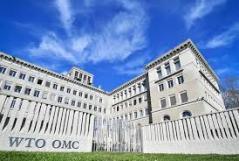 Given a rise in wages that would only concern a portion of the population and an increase in the value added of products that could offset a decrease in volumes, the nature and growth structure of producing countries would change more or less according to the sectors of activity occupied, but states should not deplore sudden economic upheavals. The International Convention for a Global Minimum Wage project, launched in 2014, benefits from a global network of 2,300 economists who know the proposals. Among these are many researchers and professors who teach at American Ivy League universities (Harvard, Yale, Columbia, Cornell...) or Stanford, Berkeley, MIT and other prestigious schools but also economists working in international institutions such as the UN, WTO, World Bank, IMF, World Economic Forum or ILO.The global minimum wage could mark the beginning of a new and rich economic reflection if it is also ethical and philosophical. This could be a point of convergence between the WTO, which is engaged in a free trade policy but more aware than ever of its perverse effects at a time when calls for a paradigm shift are increasing, and the UN, which is seeking solutions that can slow the damage caused to the planet and reduce inequalities.
Given a rise in wages that would only concern a portion of the population and an increase in the value added of products that could offset a decrease in volumes, the nature and growth structure of producing countries would change more or less according to the sectors of activity occupied, but states should not deplore sudden economic upheavals. The International Convention for a Global Minimum Wage project, launched in 2014, benefits from a global network of 2,300 economists who know the proposals. Among these are many researchers and professors who teach at American Ivy League universities (Harvard, Yale, Columbia, Cornell...) or Stanford, Berkeley, MIT and other prestigious schools but also economists working in international institutions such as the UN, WTO, World Bank, IMF, World Economic Forum or ILO.The global minimum wage could mark the beginning of a new and rich economic reflection if it is also ethical and philosophical. This could be a point of convergence between the WTO, which is engaged in a free trade policy but more aware than ever of its perverse effects at a time when calls for a paradigm shift are increasing, and the UN, which is seeking solutions that can slow the damage caused to the planet and reduce inequalities.
Consultant and entrepreneur, Francis Journot is the founder of the United States of Sub-Saharan Africa project and the Program for the Industrialization of Sub-Saharan Africa or Africa Atlantic Axis. He is also the initiator of the International Convention for a Global Minimum Wage and runs the website Collectivité Nationale
___________________________________________
![]() UN environmental report: Response to
UN environmental report: Response to
Secretary-General Antonio Guterres
Le Figaro/Tribune by Francis Journot, published october 31, 2018 - The latest UN environmental report recommends that governments change their economic models and you sound the alarm bell: "If we do not change course by 2020, we risk missing the point where we can avoid runaway climate change, with disastrous consequences for people and all the natural systems that sustain us". However, it is important to be realistic. Heads of state want more growth, companies do not like constraints and consumers do not change their habits much. From the first COP co-organized by the UN in Geneva in 1979 to the Paris Agreements in 2015, environmental policies have been ineffective. Admittedly, the polluter-pays principle that appeared in 1972 may seem justified, but the punitive ecology that systematically recommends taxation cannot constitute a relevant environmental policy and can only divide nations, especially since its application is uneven and disordered. The acceleration of environmental degradation is one of the consequences of the deregulation of world trade promoted by international organizations that now promise apocalypse. We need to break the ideological deadlock. After 23 COP It is time to draw conclusions and take a new look. Only a fair policy could be understood. In a globalized world, solutions must sometimes be global.
"The low-cost economy favours consumerism and is an ecological, economic and humanitarian anomaly"
To restore a more qualitative and sustainable consumption, we must therefore intervene upstream on the economic mechanisms that generate this situation. Adjustments could make it possible to initiate a new business model naturally and flexibly. One of our many tasks would be to find a balance between the different imperatives. We would then have to determine the most appropriate global minimum wage level for each of the 5 to 7 categories that would include all the countries concerned, sometimes with delayed progress. The amount set, which would only concern workers producing goods and services for export to the United States and the EU in the first few years, should be high enough to reduce poverty without causing economic disruption. A reasonable level would gradually influence the disposable culture. This work, although we have already made estimates, would require several hundred comprehensive studies and country-specific consultations. It would be complex and considerable but essential because it would secure the paradigm shift and guarantee States and companies, but also consumers, a gradual transition under the best conditions. All relevant economic and social parameters should be taken into account and the various scenarios objectively considered.
 A large part of the analyses and preparatory work would be carried out within a dedicated structure located in Europe and the USA. Based on a common methodology, economic studies and projections would be carried out by university economic research departments that would like to be involved in this historical project. In order to complete our work in less than two years, we could also use several international specialized firms and recognized associations of economists. In addition, as soon as the first measures are applied, an internal observatory would analyze developments. Subsequently, in the light of a new economic and philosophical reading, other solutions complementary and comparable to that of the global minimum wage would emerge. Our world could thus gradually and positively transform itself. We would probably consume less but better. In the long term, artisanal or local production could more often compete with less sustainable industrial products and tens of millions of families could make a living from them. The question of overcrowding would find answers because the world minimum wage would promote the education of children, the emancipation of women and thus a reduction in birth rates.
A large part of the analyses and preparatory work would be carried out within a dedicated structure located in Europe and the USA. Based on a common methodology, economic studies and projections would be carried out by university economic research departments that would like to be involved in this historical project. In order to complete our work in less than two years, we could also use several international specialized firms and recognized associations of economists. In addition, as soon as the first measures are applied, an internal observatory would analyze developments. Subsequently, in the light of a new economic and philosophical reading, other solutions complementary and comparable to that of the global minimum wage would emerge. Our world could thus gradually and positively transform itself. We would probably consume less but better. In the long term, artisanal or local production could more often compete with less sustainable industrial products and tens of millions of families could make a living from them. The question of overcrowding would find answers because the world minimum wage would promote the education of children, the emancipation of women and thus a reduction in birth rates.
It is regrettable that the ILO has never succeeded in a century in establishing a global minimum wage that would certainly have moderated over-consumption and environmental damage during the proliferation of free trade agreements and the abolition of import quotas. Also, for the past 5 years, many people around the world have been following the evolution of the International Convention for a Global Minimum Wage project. American academics have expressed interest since the first publications. Today our network already includes more than a thousand economists, researchers and professors in economics often from prestigious universities in the United States and most of whom seem to be in favour of the project or at least a reflection on our proposals.
The program does not obey any dogma and could federate. It responds to the issues expressed by the UN or formulated in Davos by the bosses of the largest companies who were concerned in 2018 for the second year running about the possible consequences of the "global fracture" “global fracture” and "rising inequality" but also to the conclusions of the report published by NASA in 2014, which highlighted the risk of seeing our industrial civilization disappear if we do not fight "the unsustainable resource exploitation and increasingly unequal wealth distribution". Our project could today constitute one of the few, if not the only, comprehensive, pragmatic and structuring economic proposal likely to reduce both environmental damage and inequality in the long term. Sent november 13, 2018
Consultant and entrepreneur, Francis Journot is the founder of the United States of Sub-Saharan Africa project and the Program for the Industrialization of Sub-Saharan Africa or Africa Atlantic Axis. He is also the initiator of the International Convention for a Global Minimum Wage and runs the website Collectivité Nationale
____________________________________________
Global minimum wage and environment:
What’s the New York Times's publisher,
A. G. Sulzberger gonna do?
The low-cost economy is an ecological, economic and humanitarian anomaly. The history and our children will certainly condemn us for these crimes against environment and humans. The dogmatic rhetoric of competitiveness often used, is inspired by some economic arguments already used two centuries ago by proponents of the slave trade and slavery, to protect their incomes in the production of sugar, cotton and other consumer products. Exacerbated neoliberalism is reaching its limits. Can we seriously want more free trade, and at the same time affirm that we are fighting to preserve the environment?? In 2014, a NASA study evoked a possible end of our industrial civilization in a few decades. Everyone and even the financial markets are aware that a paradigm shift will have to be considered sooner or later. But most mainstream medias, doesn't seem ready to question old ideologies. will the editorial positioning of the new publisher of one of the world's most influential newspapers be different?
Letter to Arthur Gregg Sulzberger
 You probably know the "International Convention for a Global Minimum Wage" project, like several thousand informed economists and journalists, politicians, managers of major companies or NGO leaders around the world. Reasonable and workable, it has already been published several times in the press including in the oldest and most prestigious French newspaper liberal Le Figaro. According to a study sponsored by NASA's Goddard Space Flight Center relayed by the british daily newspaper The Guardian on March 14, 2014, "The unsustainable resource exploitation and the increasingly unequal wealth distribution" could cause the collapse of our industrial civilization in a few decades. Our proposals are mainly oriented on these two axes : a progressive increase in the wages of workers producing goods and services for export to Western markets, by groups of economically close countries. Under this impetus, other local wages would mechanically increase over the years and the macro-economic effect would reduce poverty. This could make it possible to change, in the short or medium term, the lives of tens of millions of children, woman an men working in conditions akin to slavery. A pay increase and less quantitative production would reduce consumerism and slow down the destruction of the environment.
You probably know the "International Convention for a Global Minimum Wage" project, like several thousand informed economists and journalists, politicians, managers of major companies or NGO leaders around the world. Reasonable and workable, it has already been published several times in the press including in the oldest and most prestigious French newspaper liberal Le Figaro. According to a study sponsored by NASA's Goddard Space Flight Center relayed by the british daily newspaper The Guardian on March 14, 2014, "The unsustainable resource exploitation and the increasingly unequal wealth distribution" could cause the collapse of our industrial civilization in a few decades. Our proposals are mainly oriented on these two axes : a progressive increase in the wages of workers producing goods and services for export to Western markets, by groups of economically close countries. Under this impetus, other local wages would mechanically increase over the years and the macro-economic effect would reduce poverty. This could make it possible to change, in the short or medium term, the lives of tens of millions of children, woman an men working in conditions akin to slavery. A pay increase and less quantitative production would reduce consumerism and slow down the destruction of the environment.
Until the publishing of our project in September 2013, the most common suggestion since the creation of the ILO in 1919, was the utopian rather than pragmatic concept of a global minimum wage based on the median wage or the cost of living of each country and including several variants sometimes discussed in your columns by economists. This idea pleases even the largest multinationals who know that the implementation of such a system would prove impossible or would take at least several decades. Funded NGO participate in this role play. This maintains the illusion that solutions are being implemented, but the cause of the global minimum wage has stalled for a century.
Will The New York Times continue, like most media and maybe by conformity, to contribute to this masquerade or, on the contrary, will it take part in the real human and ecological progress that we advocate. Your leading position in the international press gives you, more than anyone else, an ethical duty and a particular responsibility with regard to major human and environmental issues. Only concrete project of global minimum wage that could reduce slavery and environmental degradation in the coming years, it also provide us the opportunity to reflect to a new global paradigm at a time when the fire is smouldering. The global minimum wage could succeed where 23 conferences on climate and environment witch organized since 1979 have failed. Otherwise, at Davos summit meetings in 2018, the “global fracture” and rising inequality were themes that were addressed for the second consecutive year. Both heads of state and the heads of the world’s largest corporations are more and more aware of the omnipresent risk of escalating violence. Environment, justice, fear of the risk of insurrection and economic disorder, whatever the different motivations of each, the convention and its win-win consensus proposals, could be timely. Sent august 9, 2018
Consultant and entrepreneur, Francis Journot is the founder of the United States of Sub-Saharan Africa project and the Program for the Industrialization of Sub-Saharan Africa or Africa Atlantic Axis. He is also the initiator of the International Convention for a Global Minimum Wage and runs the website Collectivité Nationale
____________________________________________
The Guardian is wrong
on global minimum wage
The idea of a global minimum wage based on the median salary or on the cost of living of each country, more utopian than workable, is the most common suggestion for a long time, but the establishment of such a system, would prove impossible or would require at least several decades. The living wage was first mentioned when the International Labor Organization (ILO) was created in 1919. This maintains the illusion since a century that solutions are implemented and contributes to the bogging down of the cause of the global minimum wage. Meanwhile, several tens of millions of children, women and men, who are paid a few tens or a little over a hundred euros a month, continue to work in conditions close to slavery and are impatiently waiting for a concrete project.
Open letter to Katharine Viner, editor in chief of the Guardian
 In an article entitled “How to stop the global inequality machine” published last year, the Guardian’s columnist Jason Hickel wrongly lends capacity and power to the ILO to install a world minimum wage. This anthropologist at the London Schools of Economics affirms, about the setting up of the “Global minimum system” advocated by the American economist Thomas Palley: “The International Labor Organization has already proven that they have the capacity to manage such a system. And it would make good sense to couple it with a universal basic income.” Yet, if we refer only to the facts, in 1928, the last Convention concerning the Creation of Minimum Wage-Fixing Machinery, left tremendous leeway to each signatory nation and the Convention was a failure: “Each Member which ratifies this Convention shall be free to decide the nature and form of the minimum wage-fixing machinery, and the methods to be followed in its operation.” So only 99 countries ratified the convention, including China in 1930 and India in 1955 – to little effect, as we now know. Other countries didn’t join until 2006 or 2007, some 80 years later! In addition, in his last book Politics against domination, Ian Shapiro, sterling professor of Political Science at Yale, wrote “Created as a branch of the League of Nations by the Treaty of Versailles, the ILO has no enforcement power”.
In an article entitled “How to stop the global inequality machine” published last year, the Guardian’s columnist Jason Hickel wrongly lends capacity and power to the ILO to install a world minimum wage. This anthropologist at the London Schools of Economics affirms, about the setting up of the “Global minimum system” advocated by the American economist Thomas Palley: “The International Labor Organization has already proven that they have the capacity to manage such a system. And it would make good sense to couple it with a universal basic income.” Yet, if we refer only to the facts, in 1928, the last Convention concerning the Creation of Minimum Wage-Fixing Machinery, left tremendous leeway to each signatory nation and the Convention was a failure: “Each Member which ratifies this Convention shall be free to decide the nature and form of the minimum wage-fixing machinery, and the methods to be followed in its operation.” So only 99 countries ratified the convention, including China in 1930 and India in 1955 – to little effect, as we now know. Other countries didn’t join until 2006 or 2007, some 80 years later! In addition, in his last book Politics against domination, Ian Shapiro, sterling professor of Political Science at Yale, wrote “Created as a branch of the League of Nations by the Treaty of Versailles, the ILO has no enforcement power”.
Even if the idea of the living wage system seems a priori seductive, it is certain that the ILO could never be able to impose this very complex process on the countries concerned. Moreover, the rate of 50% of the median wage of each country, recommended in 2011 by Thomas Palley in his book From Financial Crisis to Stagnation, main contribution to the subject of global minimum wage written by an renowned economist these last years, is not uniformly adaptable and would not systematically modify the living conditions of workers. Take Bangladesh and Ethiopia, for example, if a textile worker's monthly wage is $65/80, and the median wage does not exceed $130/160 there would be no wage increase, but we have to admit that when Thomas Palley made his proposals, the economic parameters were different ($18/25 per month in Ethiopia and Bangladesh in 2010).
In book The divide, Jason Hickel propose to twin with a universal basic income but it seems even more risky. A salary that some poverty-stricken States would not be able to afford to pay to their civil servants, or that businesses manufacturing goods for the local population would not be able to pay to their employees, obviously cannot be accepted. A wage without an economic basis could prove counterproductive. He could destabilize poor nations and worsen the living conditions of individuals.
Because it is a reality that no entrepreneur in the world is unaware of: in front of each wage increase, it is necessary, unless one wants to initiate a new collectivist model, that there is the corresponding financial resource and if we take the example of the H&M and Zara chains, whose 13,000 gigantic stores occupy several tens of millions of square meters that disfigure the most beautiful avenues in the world, this one exists. The two groups invest each year in the opening of 1,000 new stores. By reducing a little these or dividends or increasing the selling price of each article by only a few cents, tens of cents or 1 or 2 dollars/euros on more expensive coins, it would be quite possible to pay each worker several hundred dollars a month and the same is true in most industrial sectors.
We have to be pragmatic and that is why the International Convention for a Global Minimum Wage' project only proposes an increase in the wages of workers producing goods and services for export to Western markets. Under this impetus, other local wages would mechanically increase over the years and the macro-economic effect would reduce poverty.
The columnist’s conclusion may seem relativistic when he points to a possible change in future activities due to a "rising tide of automation". But robotized or not, industrial activities will not return soon and massively in Western countries. First, because the competitiveness of lower-cost countries was only one reason for their departure from our countries, but also because manufacturing know-how, capacity and ecosystems have disappeared in most sectors of the consumer goods manufacturing industry. The introduction of a global minimum wage therefore remains more than ever, essential and urgent from a human but also an environmental point of view because higher wages would reduce consumerism and devastation. The low-cost economy constitutes an ecological, economic and humanitarian anomaly.
We must commend the initiatives of NGOs that are struggle for local wage increases, but as Jason Hickel writes in his introduction: "If we want to globalise capitalism, it is logical to globalise the rules and standards that also protect people".Only a comprehensive project, reasonable and adapted to economic realities, with a strategy and proposing an evolving global minimum wage comprising several levels according to the region and degree of development, could materialize in a few years. Sent july 7, 2018
Consultant and entrepreneur, Francis Journot is the founder of the United States of Sub-Saharan Africa project and the Program for the Industrialization of Sub-Saharan Africa or Africa Atlantic Axis. He is also the initiator of the International Convention for a Global Minimum Wage and runs the website Collectivité Nationale
![]()
Environnment: a global minimum wage
could succeed where the COPs have failed
FIGARO ECONOMICS by Francis JOURNOT februar 2018
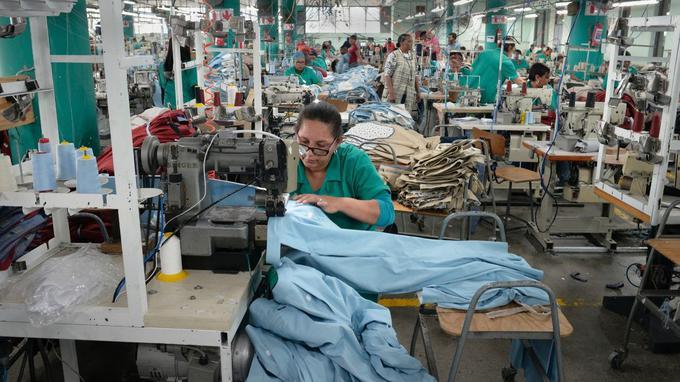 Le Figaro/Tribune - Francis Journot notes the failure of the COPs, which have failed to stem the devastating effects of the globalisation of trade on the climate. According to him, the introduction of a global minimum wage would reduce the environmental damage of the "disposable" crop.
Le Figaro/Tribune - Francis Journot notes the failure of the COPs, which have failed to stem the devastating effects of the globalisation of trade on the climate. According to him, the introduction of a global minimum wage would reduce the environmental damage of the "disposable" crop.
COPs: Reaching an Impasse
Climate imbalance appears to be undeniable, but is it a natural cyclical process of warming that we can do nothing to prevent, or is it, on the contrary, a direct consequence of industrialization over the past 200 years, which the punitive environmentalism advocated by the COPs (Conferences of Parties) aim to fight against?
Torn between ideology and scientific uncertainty, everyone seems to have made up their own minds. Despite disagreements, 154 heads of state smiled for the world’s cameras during the 21st climate conference, held in Paris in 2015. But two years later, the second phase of negotiations attracted fewer than two dozen of them to COP 23 in Bonn.
Emerging and developing nations don’t want brakes applied to their economies, and the heads of state of developed nations worry that new regulations and taxes on businesses and individuals will weaken theirs (the USA is not pleased about its $375.2 billion trade deficit in goods with China in 2017).
An accumulation of taxes is not an environmental policy
Can we seriously want more free trade, and at the same time affirm that we are fighting to preserve the environment? In the space of a few decades, humanity has done more damage to the natural environment than in the preceding two millennia. If one agrees with the COPs’ postulate that climate change is incumbent upon us as well, it seems like a rationalization of free trade might be more efficient than carbon taxes or energy transition.
 The latter’s impact is essentially on the tail end of the chain: the budget of drivers who want little more than to be able to go to work; moderate-income households that consume the disposable – and endlessly renewed – products that globalization pours into their shopping basket; fuel bills for people who can’t always afford to heat their homes properly in winter; and the bottom line of the last manufacturers in developed nations, who will wind up relocating production of consumer goods to countries that don’t apply a carbon tax… thereby increasing the emission of carbon and other toxic gases due to transportation. Piling on taxes and ineffective environmental regulations, avoiding global economic considerations and attempting to arbitrate responsibilities and duties for each country according to criteria that are more dogmatic than pragmatic displays profound cynicism and may seem like a kind of fiscal racketeering… more importantly, they do not a real, effective environmental policy make.
The latter’s impact is essentially on the tail end of the chain: the budget of drivers who want little more than to be able to go to work; moderate-income households that consume the disposable – and endlessly renewed – products that globalization pours into their shopping basket; fuel bills for people who can’t always afford to heat their homes properly in winter; and the bottom line of the last manufacturers in developed nations, who will wind up relocating production of consumer goods to countries that don’t apply a carbon tax… thereby increasing the emission of carbon and other toxic gases due to transportation. Piling on taxes and ineffective environmental regulations, avoiding global economic considerations and attempting to arbitrate responsibilities and duties for each country according to criteria that are more dogmatic than pragmatic displays profound cynicism and may seem like a kind of fiscal racketeering… more importantly, they do not a real, effective environmental policy make.
In February, 1992, European heads of state in Maastricht signed the founding treaty of the European Union – which, in accordance with its treaties, has since become the free-trade zone that is most open to importations – then in June of that same year, at the Earth Summit in Rio, recommended managing our planet’s resources better. By now, 90,000 cargo ships crisscross the seas, spewing 1 billion tons of CO2 a year into the atmosphere.
Similarly, the WTO included protecting the environment among its fundamental goals, but eliminated quotas on textile importations in 2005. Since then, the textile industry has moved up to second place amongst sectors producing the most pollutants – right behind the oil industry. According to a report “by the Ellen MacArthur Foundation” published on November 28, 2017 called “A New Textiles Economy: Redesigning fashion's future”, the equivalent of a garbage truck loaded with textiles is incinerated or thrown away every second. The waste in barely-worn clothes is close to $500 billion a year, and the 500,000 tons of microfiber waste that winds up in the sea each year is the equivalent of 50 billion plastic bottles.
The most-recent COPs have requested annual funding of $100 billion, which will supposedly enable actions in favor of slowing down global warming. At the One Planet Summit, the European Commissioner Valdis Dombrovskis upped the ante even more: “to limit global warming to well below 2 degrees Celsius,” he declared, “Europe needs an estimated €180 billion in additional yearly investment over the next decade.” That program, which strings together new fiscal measures in favor of the climate, and the flourishing green-bond market might strike tax-payers as example of wild over-financialization, leading to the risk of a "green bubble” rather than a concrete, concerted effort to protect the environment.
The low-cost illusion
 The low-cost economy constitutes an ecological, economic and humanitarian anomaly. Entire populations are pauperized while others are subjected to work conditions bordering on slavery. When a garment worker paid a few dozen or even a hundred euros assembles several hundred or thousand items of clothing, the cost ranges from a euro for a t-shirt to a few euros for other items of clothing, or a little more, depending on the brand’s market position. But the over-exploitation of resources, and lack of respect for safety norms that then requires river-cleanup, reforestation, reintroducing endangered species and medical care for sick workers.
The low-cost economy constitutes an ecological, economic and humanitarian anomaly. Entire populations are pauperized while others are subjected to work conditions bordering on slavery. When a garment worker paid a few dozen or even a hundred euros assembles several hundred or thousand items of clothing, the cost ranges from a euro for a t-shirt to a few euros for other items of clothing, or a little more, depending on the brand’s market position. But the over-exploitation of resources, and lack of respect for safety norms that then requires river-cleanup, reforestation, reintroducing endangered species and medical care for sick workers.
Pairing the “consume less but better” precept to an economic mechanism
The current challenge, which consists in slowing down the perfect storm of excess consumerism can be taken on by acting on modes of consumption and production. Granted, we need to learn new ways of consuming, but we can assume that the recommendation to “consume less, but better” won’t be enough. Consumers don’t always have a choice, and often have to settle for the low-cost, disposable offer with built-in obsolescence that is imposed by brands and warehouse stores.
The best way to re-achieve equilibrium is to have an impact at the beginning of the consumer chain. We need to come up with economic mechanisms that will, in the long term, produce the desired effect.
Before the massive outsourcing of the manufacturing of consumer goods, the low coefficients applied to calculating production costs were fairly standard within each profession. Taking into account both a minimum wage and traditionally fairly high production quality, the final sales price was reasonably close to the actual cost of the item, and consumerism was essentially self-regulating.
Nowadays, sales prices are determined by the market’s psychological price (the amount consumers are willing to spend). It is no longer unusual to pay 10 to 20 times an item’s production cost. Granted, import duties used to participate in moderating global production, and it must be acknowledged that it would now be almost impossible to restore the former transparency and equilibrium into the current free-trade context. It would, however, be possible to aim in that direction by nudging businesses towards properly re-pricing products, which would then lead to considerable decreases in waste and over-consumption.
When labor costs are very low, industrials tend to pay less attention to the quality of item’s design and production, meaning they are subsequently fairly flimsy. The often find a purchaser nevertheless, and if not, they are destroyed. A global minimum wage would encourage reducing the production of disposables. The wage would have to apply specifically to the manufacturing of items for exportation, and countries would be classified by average-wage category. Heads of state of emerging nations would be aware of the human and philosophical dimensions, in addition to the economic one. The advantages and benefits of a decent salary – a source of new tax revenue and of financial development funded by increased contributions from the purchasers (retailers, rather than consumers) – would be very convincing.
In the long term, a global minimum wage would generate a positive macro-economic effect on the standard of living of entire populations. Nevertheless, considering what a small fraction of the final price workers’ salaries represent, the price to consumers would barely change.
An international convention for a global minimum wage by groups of countries and specific to exportation
 In virtue of the principle of legitimacy and a hierarchy of priorities, the International Convention for a Global Minimum Wage – which could also have been named the International Convention for Human Dignity and the Preservation of the Planet, would override international business and free-trade treaties. Organized under the aegis of the two largest consumer markets (the USA and the EU), it would, in order to ensure its efficiency, be independent of existent bodies. If one considers the failure of the 1928 convention and other attempts, the International Labor Organization (ILO) has not, over the past 90 years, shown a capacity for introducing and successfully implementing a global minimum-wage project. Currently, many nations close their eyes to working conditions, believing they are serving their national interest, but those improper salaries actually keep whole populations in poverty and whole countries under-developed.
In virtue of the principle of legitimacy and a hierarchy of priorities, the International Convention for a Global Minimum Wage – which could also have been named the International Convention for Human Dignity and the Preservation of the Planet, would override international business and free-trade treaties. Organized under the aegis of the two largest consumer markets (the USA and the EU), it would, in order to ensure its efficiency, be independent of existent bodies. If one considers the failure of the 1928 convention and other attempts, the International Labor Organization (ILO) has not, over the past 90 years, shown a capacity for introducing and successfully implementing a global minimum-wage project. Currently, many nations close their eyes to working conditions, believing they are serving their national interest, but those improper salaries actually keep whole populations in poverty and whole countries under-developed.
The idea would be to link exporting towards the USA and the EU to a commitment by heads of states, via the International Convention for a Global Minimum Wage, to then initiate legislation in their respective countries in support of a global minimum wage for workers producing goods and services intended for those large consumer markets.
Each government would then be responsible for making sure those new rights were respected both by local sub-contractors and by foreign businesses implanted on their soil. Wronged employees would have recourse to a dedicated international body for soliciting assistance. In case of repeated infringements, penalties would be applied before eventually calling into question importations from that country.
To begin with, the global minimum wage could be applied to only the 2 or 3 industrial sectors whose production and transportation needs count among the most polluting ones. In a similar vein, increasing salaries would be spread over 2 or 3 years or even 5 or 6 years when they are very low (e.g. $40 in Ethiopia), in order to allow the changes to take place in an orderly manner. Negotiations for a specific minimum wage for agriculture, i.e. concerning unprocessed products, would also take place. They would take into account the reduced margin differential in that sector. The new agricultural salary (as long as it is not below the minimum wage already in effect in the country) could fall somewhere between the median salary and the manufacturing minimum wage for exportations for the same category. The agricultural salary could also cover mining activities.
Nations’ economies and wages are sometimes interdependent, it would be essential to be sure not to accentuate economic unrest. For example: a 30% increase in the salary of a Chinese factory worker in the export sector would also contribute to preserving equally reevaluated jobs held at the sub-contracting factories that are becoming more numerous on every continent.
Low risk of inflation or economic destabilization
Rising inflation rates in emergent or developing economies could turn out to be limited because the wage increase would not concern people working for local production. Therefore, it should have very little impact on local prices. In any case, social and economic progress would be spread out over time (several years), naturally and more or less progressively depending on each country’s structure. The risk of losing industries is also minimal. Major chains would have no reason to suddenly leave Bangladesh, Ethiopia or Vietnam if wages would have increased elsewhere as well. It is also highly unlikely that labor-intensive industries would suddenly return to countries that have lost their manufacturing know-how and capacity.
The minimum wage wouldn’t make prices rise excessively in western commerce, because, on the one hand, they have to take into account consumers’ purchasing power, and on the other, they face fierce competition. In the clothing sector, more than 40% of clothing is currently sold at sale or discounted prices. The largest impact would be on the weekly pace of "fast fashion" collections, recurrent advertising campaigns, and the number and size of the mega-stores on the world’s most prestigious shopping streets. A minimum wage applied to only part of a country’s active population is a concept that has almost never been tried, so there are no representative examples.
So we can instead refer to the implementation of a minimum wage in France, which was agreed to at the Grenelle negotiations in 1968. It represented an overall rise of 35%: the minimum agricultural income grew by 55% and other wages saw their remuneration increase by 100% or more over the following months and years, yet the inflation rate stayed fairly stable until the 1973 oil crisis.
If one examines the more-recent case that China represents, even though we need to take dumping into account, we can observe that multiplying the average wage by 300% in less than 10 years did not generate a sudden rise in the price of the products exported and sold on the shelves of western retail chains.
Consultant and entrepreneur, Francis Journot is the founder of the United States of Sub-Saharan Africa project and the Program for the Industrialization of Sub-Saharan Africa or Africa Atlantic Axis. He is also the initiator of the International Convention for a Global Minimum Wage and runs the website Collectivité Nationaleage
![]()
Dumpings, environment, slavery :
a global minimum wage would offer solutions
FIGARO ECONOMICS by Francis JOURNOT november 2017
 Le Figaro/Tribune - Francis Journot denounces the slavery of several tens of millions of women and men paid a few tens or a little over a hundred euros a month. It defends a global minimum wage, which would initiate a transition towards a paradigm shift.
Le Figaro/Tribune - Francis Journot denounces the slavery of several tens of millions of women and men paid a few tens or a little over a hundred euros a month. It defends a global minimum wage, which would initiate a transition towards a paradigm shift.
Deregulation of trade and economic imbalances, overproduction and destruction of the environment, working conditions close to slavery and immigration, unemployment and precariousness in developed countries: the Happy globalisation and European cohesion have remained a slogan. On 17 November 2017, at the European Social Summit in Göteborg, French President Emmanuel Macron exhumed the theme of the European minimum wage without, nevertheless, integrating the parameters inherent in a globalised economy. However, the introduction of a European minimum wage could be achieved through the joint introduction of a global minimum wage. The export specific wage is an option that should now be considered.
How to create a European minimum wage?
The project of a single European minimum wage or according to the median income of each country never came to fruition when the EU had only 15 members and 25 years after Maastricht, one can doubt a possible agreement between the 28 countries. A salary that states could hardly assume in their administrations or that companies producing for the local population could hardly pay to their employees, obviously has no chance to succeed even in two stages, euro zone then EU, as recommended by the president of the European Commission Jean Claude Juncker. Moreover, a unilateral increase in European wages would deindustrialize and further impoverish a European Union which deplores an external deficit of $170 billion with China, comparable to that of the USA which exceeded 478 billion dollars in 2016 with the same country.
Within the EU countries, only Germany is doing well. This one wins the jackpot with a world record surplus of $293 billion including 257 with China. The EU's largest economy benefits both from an undervalued Yuan that allows it to import parts at low prices and from a workforce of subcontractors from neighboring countries whose wages are among the lowest in Europe. European countries with the lowest wages in the EU will not give up their competitive advantage unless they are assured that the increase will have little effect on their respective economies. But for this to happen, it would then be essential that all the other low-cost countries also increase the competing wages of workers and employees producing goods and services that are then exported to the major consumer markets.
International Convention on a Specific Minimum Wage for Exports
 It would therefore be appropriate to make exports to the two major consumer markets (EU and USA) subject to the commitment of the heads of state, during an international convention for a minimum wage, to then legislate in their respective countries, in favour of the world minimum wage for workers and employees who produce goods and services destined for the USA and the EU. Its amount, which could be between €250 and 350 in the first years, would be determined at the end of a vote of the convention. Certainly a share of Chinese manufacturing wages is already in this range but the workers working for the subcontractors more and more numerous in Asia, Africa or Europe (outside the EU countries) would benefit from it. Ambitious for some, too modest for others, this step would nevertheless constitute undeniable social progress for several tens of millions of women and men paid a few tens or a little over a hundred euros a month to work sometimes in conditions close to slavery.
It would therefore be appropriate to make exports to the two major consumer markets (EU and USA) subject to the commitment of the heads of state, during an international convention for a minimum wage, to then legislate in their respective countries, in favour of the world minimum wage for workers and employees who produce goods and services destined for the USA and the EU. Its amount, which could be between €250 and 350 in the first years, would be determined at the end of a vote of the convention. Certainly a share of Chinese manufacturing wages is already in this range but the workers working for the subcontractors more and more numerous in Asia, Africa or Europe (outside the EU countries) would benefit from it. Ambitious for some, too modest for others, this step would nevertheless constitute undeniable social progress for several tens of millions of women and men paid a few tens or a little over a hundred euros a month to work sometimes in conditions close to slavery.
Similarly, the creation within the EU of a European minimum wage which could be around €600 would accelerate the achievement of the social Europe desired by Brussels but which has so far failed. The wage increase would satisfy workers in the 10 EU countries whose minimum wage is close to or less than €400 without threatening state economies. Indeed, it is unlikely that labour industries now relocated to lower-cost countries will return instantly to countries that have lost their know-how and productive capacities. For example, the manufacture of low- or mid-range textile articles would usually only cost a few cents or tens of cents more. On the other hand, the increase in the purchasing power of employees in industry and exported services would mechanically extend to all the populations of the countries concerned and could generate markets with higher added value, sometimes more local and respectful of the environment.
After the failure of all climate conferences, the strategy must change
When a worker paid monthly €30 or €100, assembles several hundreds or thousands of garments each month, the manufacturing cost is often considered insignificant but the same is not true for the impact on the environment because textiles are the second cause of pollution behind the oil industry. By instituting a minimum wage, clothing will gradually abandon its status as a disposable product. A salary of €300 would not necessarily increase prices in the big chains. These are generally set according to the purchasing power of consumer countries and their competition. The main impact would be the weekly rhythm of the "fast fashion" collections, the advertising budgets, the surface of the pharaonic stores installed on the most prestigious avenues and the profit margins.
Previously each item had a manufacturing cost that valued the product. Now H&M burns 12 tons of clothes every year, according to Danish journalists. The unbridled free trade model that favours more quantitative than qualitative production and moves hundreds of millions of tonnes of goods from one end of the earth to the other will have to be rethought. According to The Gardian, the 15 largest container ships pollute as much as the entire global fleet. Today, nearly 100,000 cargo ships sail the seas. The climate conference held in Paris in 2015 made the world aware of climate issues but, like previous meetings, will not reduce overproduction, particularly in China. The world's biggest polluter had already failed the Copenhagen conference in 2009 and did not hide his ambition to dominate the world economy before thinking about reducing his emissions, the peak of which will not be reached until 2030, but judged the climate contribution of developed countries set at $100 billion per year from 2020, very insufficient. The failure seems inevitable once again.
Of course, the global minimum wage would not solve all the problems. Nevertheless, it would initiate a transition towards an indispensable paradigm shift. Consuming less but better could be one of its objectives. This month we asked to a specialized group of reputable lawyers from the East Coast of the United States to forward our proposal for an international convention for a world minimum wage to the American government. President Donald Trump could bring this project to fruition, which would represent important social and environmental progress for humanity, but will he want it?
Consultant and entrepreneur, Francis Journot is the founder of the United States of Sub-Saharan Africa project and the Program for the Industrialization of Sub-Saharan Africa or Africa Atlantic Axis. He is also the initiator of the International Convention for a Global Minimum Wage and runs the website Collectivité Nationale
______________________
Pope Francis: slavery, deadly immigration –
a global minimum wage is needed
Tribune/Marianne By Francis Journot february 2015
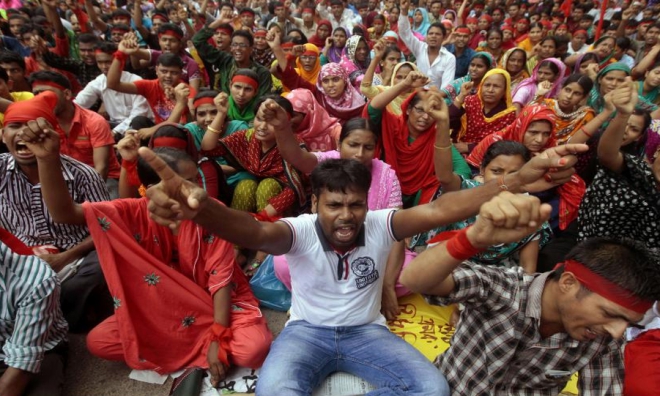
A global minimum wage that is specific to exportation
The idea of a global minimum wage is not new, but in the absence of a pragmatic project, the idea has never made any serious headway. The median salary according to the standard of living and average wages in each country is the most common suggestion, but putting a system like that into place would take decades. Indeed, in 1928, the last Convention concerning the Creation of Minimum Wage-Fixing Machinery, left tremendous leeway to each signatory nation, but the Convention was a failure: “Each Member which ratifies this Convention shall be free to decide the nature and form of the minimum wage-fixing machinery, and the methods to be followed in its operation.”99countries ratified the convention, including China in 1930 and India in 1955 – to little effect, as we now know. Other countries didn’t join until 2006 or 2007, some 80 years later.
Thus this experience teaches us that, in order to be efficient and to be ratified quickly by the largest possible number of members, any new international convention must necessarily establish precise, common methods of application. In addition, the process must not be financially onerous for the member states. To begin with, the global minimum wage we advocate would be aimed at wage-earners whose work is related to products and services for export to the world’s largest consumer markets. The heads of developing states could see the advantages of a decent wage, which would also be a source of tax revenue and would contribute to development paid for, in part, by consumers, essentially in the West. In the long term, the minimum wage could generate a positive macroeconomic effect on the standard of living of entire populations.
Currently, with hourly wages generally ranging from a few cents to less than half a euro, wages’ share in the production cost of consumer goods produced in low-wage countries often represents only 1 to 5% of the total price paid by the consumer. A specific global minimum wage of $300 to $400 would increase production costs, but should still have only a moderate impact on consumer prices. Between the effects of the global economic crisis – which has reduced purchasing power – and increased competition, with an endless stream of new players, particularly in the garment industry, supply generally adapts to demand, and price tags for low-end and middle-range consumer goods have been shrinking. The fact is that the large corporations that outsource labor to low-wage countries generally enjoy wide enough margins that they can reduce them without harming their own profits. Apple, for example, posted a total of nearly $80 billion profits in 2013 and 2014, and chains like ZARA and H&M have been opening some 400 new luxury megastores a year, in some of the world’s most desirable real estate.
Imagining a change in modes of production
Integrating a living minimum wage and the actual environmental impact into production costs would guide us towards curbing consumerism and, long term, would help reduce global warming as well. Raising industrial wages in developing nations would reduce the productivity gap between industrial production and craftsmanship. That would encourage the growth of local cottage industries and farms that are more respectful of the environment, which could then guarantee vital revenue to independent craftspeople or employees of smaller-scale structures, particularly in developing nations. Production would gradually evolve towards a higher-quality, less-disposable offer with less planned obsolescence, which would subsequently be more economical for consumers. At a time when the economic model based on a headlong race for growth has revealed its limits, but continues nonetheless to contribute to the destruction of our planet, it is time to require asocial- and ecological-responsibility percentage from the world’s largest corporations. It could be calculated on the basis of the true environmental footprint of the services oritems sold. It would take into account the quality or solidity of the items, and the working conditions for those offering services directly or producing items for sub-contractors, as well as all stages of sales and delivery, including advertising. Through a global agency devoted to this process, their contribution could finance actions in favor of fighting global warming, particularly through developing local economies and cottage industries, or any other actions leading to reducing the corporations’ ecological footprint.
The task would be less daunting that it might seem, because fewer than 400 international corporations share the quasi-totality of the global marketplace. It would be only right and fair that corporations which profit excessively from the world’s resources should contribute financially to repairing the damage they cause. In your World Day of Peace message communicated on 10 December 2014 entitled “No longer slaves, but brothers and sisters,” you drew attention to the “social responsibility of consumers” thus: “Every person ought to have the awareness that ‘purchasing is always a moral – and not simply an economic – act’”. It is true that consumers can and must reduce their consumerism. Yet responsibility also lies with the free-trade policies that encourage consumerism and which, in just a few years, have caused CO2 emissions to sky rocket. Purchasing used to be a considered act based on looking for the best value for money in a diverse, but relatively high-quality offer, but nowadays, the guidelines have disappeared. Consumers, ever more subject to an onslaught of advertising, consume whatever offer that is imposed upon them by a small number of multi-national corporations that reign over consumer markets. Individual consumers are now practically obliged to frequently renew disposable or soon-to-be-obsolescent equipment produced in low-wage countries where there is often little concern for either human rights or the environment.
Saving children
According to a 2012 UNICEF report, 322 million children (23% of 5-17 year olds worldwide are involved in economic activities. Among them, 215 million work in unacceptable conditions, and over 110 million of them are subject to unspeakably bad conditions. If one recognizes that when parents are paid a living wages children are less likely to be obliged to work and can instead pursue and education, then the existence of a living wage is crucial to children’s well-being. By the same token, we watch helplessly as thousands of migrant children and adults drown in their attempts to immigrate; they are often fleeing countries where the wages of those who produce items intended for the large consumer markets barely allow them to survive. We must work towards the regulation of a global labor market, which, in the entire history of humanity, has never involved so many people in slavery-like conditions in emerging and developing nations, or so many poor or unemployed people in developed ones.
An end of slavery
On 2 December 2014, International Day for the Abolition of Slavery, a meeting co-organized by the Vatican and the Global Freedom Network, initiated by the Australian millionaire and mining magnate Andrew Forrest, obtained the signatures of 16 major religious leaders who jointly pledged to work together to “end slavery by 2020.”Yet the declaration does not seem to have involved a joint strategy. Thus one can legitimately fears that, like so many conferences and conventions organized since the Universal Declaration of Human Rights in 1948, the resolutions will not have any concrete effects. In addition, the movement’s website, which, it was hoped, would attract the support of a major proportion of the world’s population, seems to be stagnating at about 11,000 signatures on Facebook and just over 2,400 on Twitter. Unfortunately, it seems that the hoped-for global mobilization has not fallen into place.
Mobilizing moral, religious and economics authorithies
Published in September 2013, the Global minimum wage to abolish slavery project has attracted attention from world-renowned economists; among them, several who teach at prestigious American universities have contacted us to express their interest. Although it is of a clearly different nature and never really came to fruition, as of January 2014, the American minimum wage project had gathered the support of 600 economists. The religious leaders who you brought together, as well as a great number of economists around the world, are among those who could support the “International Convention for Minimum Wage ”that we propose. Some of them could participate in it. Both developing and developed nations could see this convention as an opportunity to restore peace and stability to a world on the verge of social collapse. This would perhaps convince the USA and the EU –the two principal consumer markets, the International Labour Organization (ILO) and the World Trade Organization (WTO) to seriously consider the necessity and ineluctability of a global minimum wage.
Consultant and entrepreneur, Francis Journot is the founder of the United States of Sub-Saharan Africa project and the Program for the Industrialization of Sub-Saharan Africa or Africa Atlantic Axis. He is also the initiator of the International Convention for a Global Minimum Wage and runs the website Collectivité Nationale
![]() Letter to Barack OBAMA, president of United States of America, Jean Claude JUNCKER, president of European Commission, Robert AZEVEDO, director-general of WTO, Guy RYDER, director-general of ILO and all heads of state in emerging and developing countries.
Letter to Barack OBAMA, president of United States of America, Jean Claude JUNCKER, president of European Commission, Robert AZEVEDO, director-general of WTO, Guy RYDER, director-general of ILO and all heads of state in emerging and developing countries.
Tribune/Marianne By Francis Journot october 2013
A global minimum wage to abolish slavery
"The eradication of working conditions close to slavery begins with a decent wage"
A living wage can be a tool for human rights
The International Labour Organization (ILO) and many NGOs (non-governmental organizations) regularly attest to the alarming work and safety conditions for workers in low-wage countries. But the protocols signed by retailers and local industries have shown themselves to be insufficiently binding and have not significantly improved the lives of people who are too often reduced to slavery.  Each year, hazardous health situations and accidents continue to kill thousands of workers. Unfortunately, it is unlikely that contractors will agree to give up even a minor share of their profits in order to advance workers’ safety. According to them, this responsibility belongs to the subcontractors, who generally argue that they are unable to fund improvements without the financial involvement of major retailers.
Each year, hazardous health situations and accidents continue to kill thousands of workers. Unfortunately, it is unlikely that contractors will agree to give up even a minor share of their profits in order to advance workers’ safety. According to them, this responsibility belongs to the subcontractors, who generally argue that they are unable to fund improvements without the financial involvement of major retailers.
British trade-union leader Guy Ryder has been the Director General of the ILO since October 2012 (photo MEDEF)
Therefore, it is time to consider a different approach: better-paid workers with greater access to information, as well as to advice and legal assistance to protect and enforce their rights. If we, western consumer markets, agree to help employees in low-wage countries obtain a living wage for their work, we will also be providing them with tools that will allow them to improve their work, health and safety conditions. There is no doubt that they will know how to engage in a dialogue with their respective companies and countries that would lead to the eradication of living conditions akin to slavery.
A means to fight against child labor
A convention against child labor was ratified by 174 countries in 1999. Yet 322 million children – representing 23% of the world’s population aged 5 to 17 – are engaged in economic activities. Of those, 215 million work in unacceptable conditions, and more than 110 million are subjected to extremely harsh working conditions. If parents were better paid, many children would not be obliged to work and could get an education.
Adopting a more global viewpoint
In the context of globalization, the situation of workers in developing countries must be approached with a global vision. One can always point the finger at the danger and risks in specific jobs and industries, or the extreme exploitation of workers in certain countries, but that exposes them to outsourcing production to other regions where workers may be even less well-protected. 
The 2013 Rana Plaza building collapse in Dhaka cost 1,133 people their lives and injured 1,900 more workers, of whom 1,000 women and men had serious injuries, often requiring amputation. Since then, several textile firms – probably more concerned with their own image than with the plight of Bangladeshi workers – have transferred production to other countries in Asia or Africa. On September 12, 2013, an attempt to compensate the Rana Plaza victims was organized in Geneva under the auspices of the ILO. Only 9 out of the 29 brands involved bothered to attend. The absentees included AUCHAN, BENETTON, C & A, CARREFOUR, MANGO and the textile group INDITEX (with capital of almost €70 billion), which owns ZARA, MASSIMO DUTTY, BERSHKA, OYSHO, PULL & BEAR and STRADIVARIUS, among other brands. In order to put a stop to this insane and murderous cycle, perhaps it is time to try to come up with a more effective response. Most Western consumers would welcome the establishment of global wage standards.
Nevertheless, the protection, rights, safety and health of citizens is the responsibility of each nation, which remains sovereign, even when there are clear lacks. Moreover, the immediate establishment of a living minimum wage for all employees in every developing country would, most often, be economically unfeasible. Therefore, to provide long-lasting solutions to urgent and often dangerous situations, the key is to organize an international convention at which a mandatory minimum wage specifically for export work could be agreed upon, so as to allow for exchange to take place in a more fair and peaceful world.
An international agreement between consumer markets and low-wage countries
The U.S.A. and the E.U. could, in collaboration with the ILO and within the framework of the World Trade Organization (WTO), invite all low-wage industrial countries to ratify an international convention.
 In essence, this agreement would make paying manufacturing and service personnel in accordance with negotiated international standards a pre-requisite for exporting to the world’s two largest consumer markets. It would be necessary to collaboratively determine a figure that is high enough to raise the salary of many workers around the world, but also reasonable and moderate enough to be agreed to bythe largest possible number of exporting countries.
In essence, this agreement would make paying manufacturing and service personnel in accordance with negotiated international standards a pre-requisite for exporting to the world’s two largest consumer markets. It would be necessary to collaboratively determine a figure that is high enough to raise the salary of many workers around the world, but also reasonable and moderate enough to be agreed to bythe largest possible number of exporting countries.
A discussion between the main consumer markets and the exporting countries group could be based on the following, which would, however, only be a first step towards broader wage standardization.
Brazilian diplomat Roberto AZEVEDO, who has led the WTO since September 2013, is the first Director General of the WTO to come from a developing nation (photo WTO)
- A minimum net monthly salary of $500 or €400 for workers producing goods or providing services for export mainly to the two largest consumer markets, the E.U and the U.S.A. This would concern countries in Asia, South America, Africa and Europe. European Union countries that do not have a legal minimum wage or where the minimum wage is below the recommended threshold should also comply with this rule in orderto export to other E.U, countries and to the U.S.A.
Moreover, the E.U. is itself home to tremendous inequalities: at €120 net per month, the Bulgarian minimum wage is the lowest in the E.U. while in Luxembourg, the minimum wage exceeds €1,500. It would be up to the European Commission to impose greater equity among its members. ¹
It would then be up to each participating nation to create legislation requiring both domestic and foreign companies to respect the provisions governing remuneration of personnel working for export that were agreed to at the convention.
On December 7th, 2013 in Bali, the WTO, with 157 ministers from Member States, signed a historic agreement liberalizing international exchanges. The agreement provides for a reduction of duties on exports from developing countries, and a simplification of customs procedures. Large corporations and financial markets may well turn out to be the main beneficiaries of this agreement. This time, the WTO, along with the ILO, could organize an international convention to defend enslaved populations. In addition, the reduction in customs expenses afforded by this agreement represents a decrease in costs to trans-national industrial groups, which could participate in financing a revaluation of remuneration for low-wage employees in developing and emerging nations.
More pay is possible without increasing consumer prices
In just twenty years of globalization, fashion and luxury corporations, large retailers and brands have built huge financial empires. Each year they distribute tens of billions of euros to their shareholders at the expense of abused consumers and exploited workers. Thousands of exorbitant temples to consumerism now occupy millions of square meters on the most beautiful streets in the world.
But at the other end of the assembly line, salaries rarely reach $200 a month, and are often less than $120. On average, Bangladeshi women are among the lowest-paid workers in the world: as little as $40 for up to 250/300 hours of labor. In Ethiopia, some workers receiving as little as $28 a month also reported that they were beaten by the foremen.
Yet it would be perfectly possible to pay employees who produce goods for export correctly, in all industries, at no extra cost to the consumer. The decrease in profits would be in the vicinity of just 50 cents for most items, and only a few dollars for the most costly products. For example, the annual production of a Bangladeshi woman in the textile industry who is paid less than $600 a year contributes directly to revenues of up to $200,000 to $400,000 a year. These revenues come from consumer spending in large retail chains or low-, medium-, high-end and luxury shops. Similarly, the cost of labor for a smartphone rarely exceeds 2-5% of the sale price; for a pair of brand-name sneakers, it is between 1.5 and 3%; a luxury bag crafted in a few hours is sometimes sold for as much as $1,000 to $2,500.
The low-cost emerging countries allow retailers to acquire lavish stores of the most beautiful avenues in New York
ZARA store on 5th Avenue in NY, occupies 32,292 ft2 (3,000 m2) and cost 324 million dollars. The Inditex group has 6,000 stores around the world. / H & M, which already has 2,853 stores worldwide, continues to open new ones apace: 57,049 ft2 (5,300 m2) in Times Square; 41,979 ft2 (3,900 m2) on 5th Avenue, and 62,431 ft2 (5,800 m2) in Herald Center opening in winter, 2014.

A barcode to increase respect for both human rights and natural resources
Product traceability, represented by a barcode that would be required for export to the E.U. and the U.S.A., could facilitate the implementation of labor laws in exporting countries. What’s more, production of every single item has a direct impact on the state of the planet and the depletion of natural resources. Perhaps now is the time to begin to fight against consumerism, global warming and the destruction of the ecosystem. A barcode would give every item an identity. It would indicate the name of the contractor, manufacturer and sub-contractors, the economic conditions of employees involved in production, compliance of the substances used and their ecological footprint. This could be the beginning of true global resource and trade management. Moreover, it would be an effective tool in the fight against counterfeiting.
So that every country can build a healthy economy
According to most Keynesian economists and those belonging to other schools of thought, raises, particularly in low wages, have a positive macro-economic effect on countries’ development. The practical effects are amplified all the more on the local economy in developing nations when their economies’ are based on agriculture, livestock and manufacturing consumer goods. Improving the wages of employees working for export would mechanically lead to raises in income for all other citizens in exporting countries. Eventually, the increased consumption of necessities, whether food or material goods, would generate growth in the domestic market . Moreover, this could help build more independent, healthier economies that would be less oriented toward sever-increasing production, with its often-disastrous attendant effects on the environment.
Consumers: hostages and unwriting accomplices
We, Western consumers, no longer agree to be unwitting accomplices held hostage to speculative economic policies that impose working conditions akin to slavery on women, men and even children 10 years old or younger. The promise of happy globalization which would benevolently create decent jobs in poor countries while providing cheaper goods to rich ones has hardly come true: working conditions in developing countries have barely improved since the beginning of globalization; unemployment in Western countries has mushroomed, and the prices of most consumer goods have steadily increased. It now appears that shareholders of major corporations are in fact the main beneficiaries of this fool's bargain. Western contractors clearly share responsibility for this form of modern slavery with local industry. They must also sometimes deal with mafia-style organizations and corrupt officials or politicians. Therefore, the introduction of a statutory minimum wage for export would assist signatory countries in fighting against corruption, which deprives workers and citizens of the fruits of growth that should, by rights, be theirs. Governments could thus better fulfill their duty to protect their citizens. Membership in this international convention between consumer markets and developing countries could represent a historic opportunity for economic and social progress for each of the signatory nations.
Consultant and entrepreneur, Francis Journot is the founder of the United States of Sub-Saharan Africa project and the Program for the Industrialization of Sub-Saharan Africa or Africa Atlantic Axis. He is also the initiator of the International Convention for a Global Minimum Wage and runs the website Collectivité Nationale
Copyright © 2013 - 2023 - non profit NGO International Convention for a Global Minimum Wage & Francis Journot Fair Consulting - All rights reserved
Make a free website with emyspot - Signaler un contenu illicite sur ce site